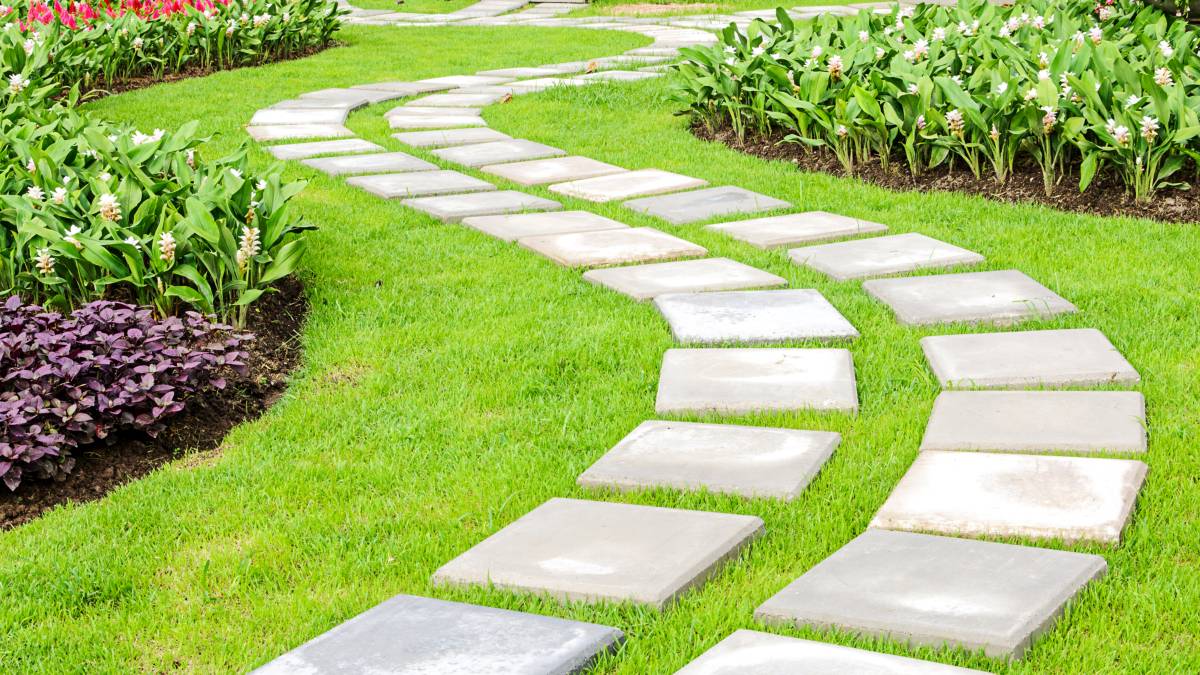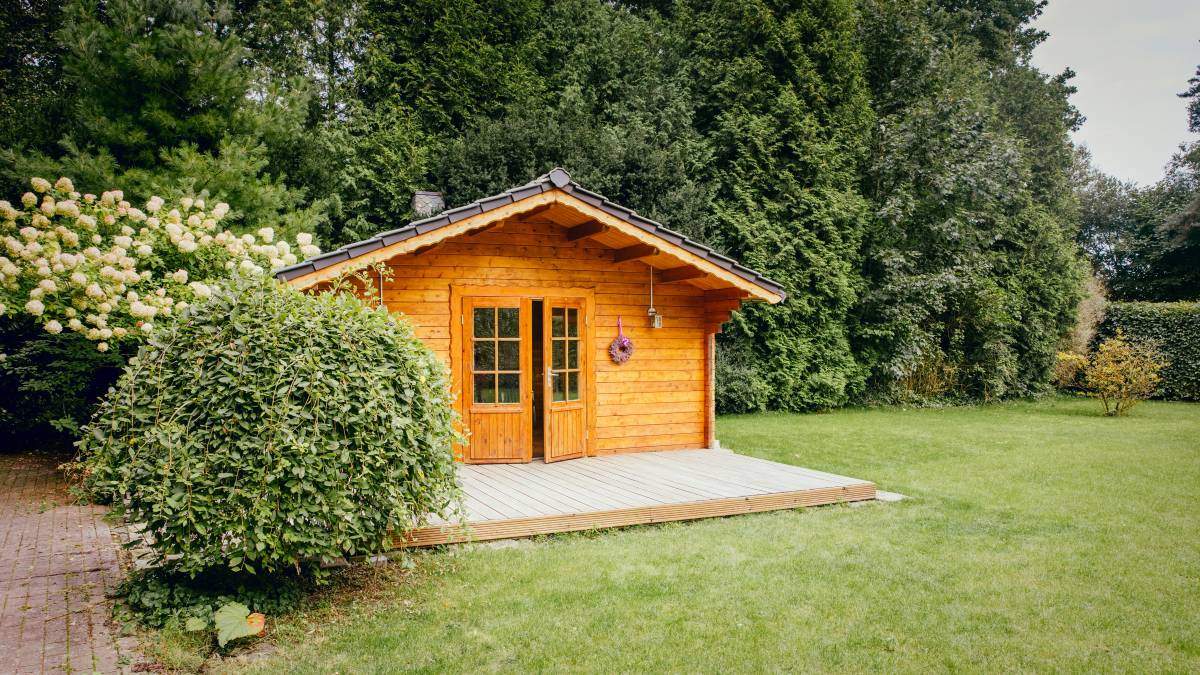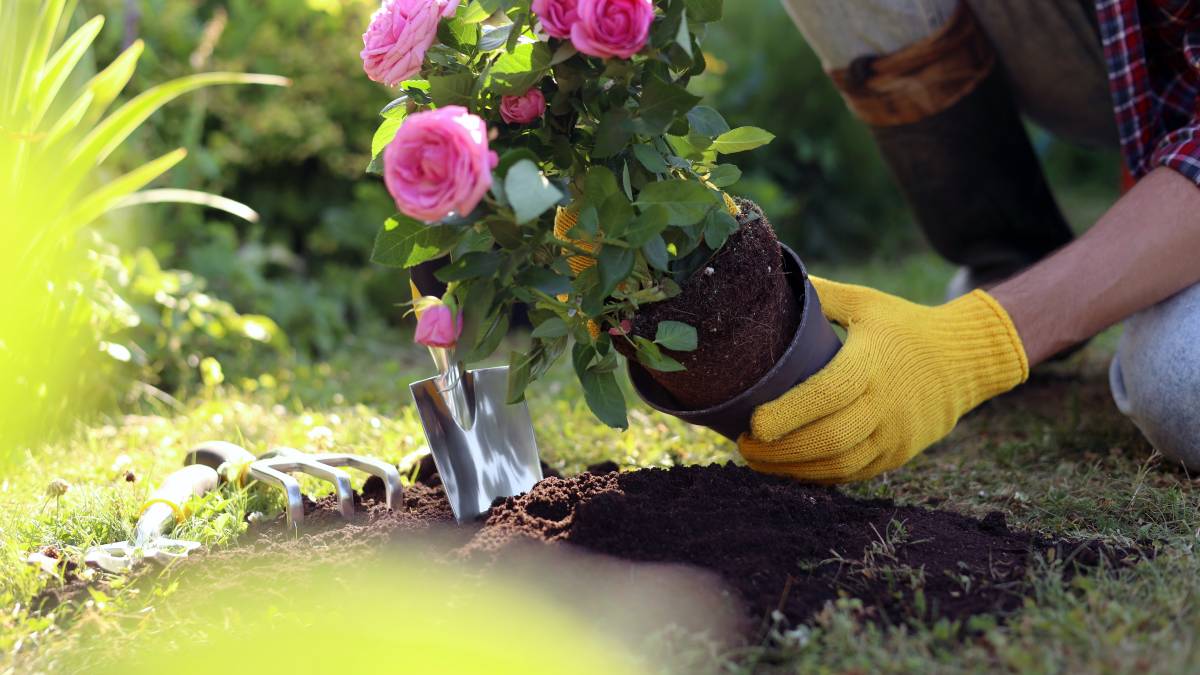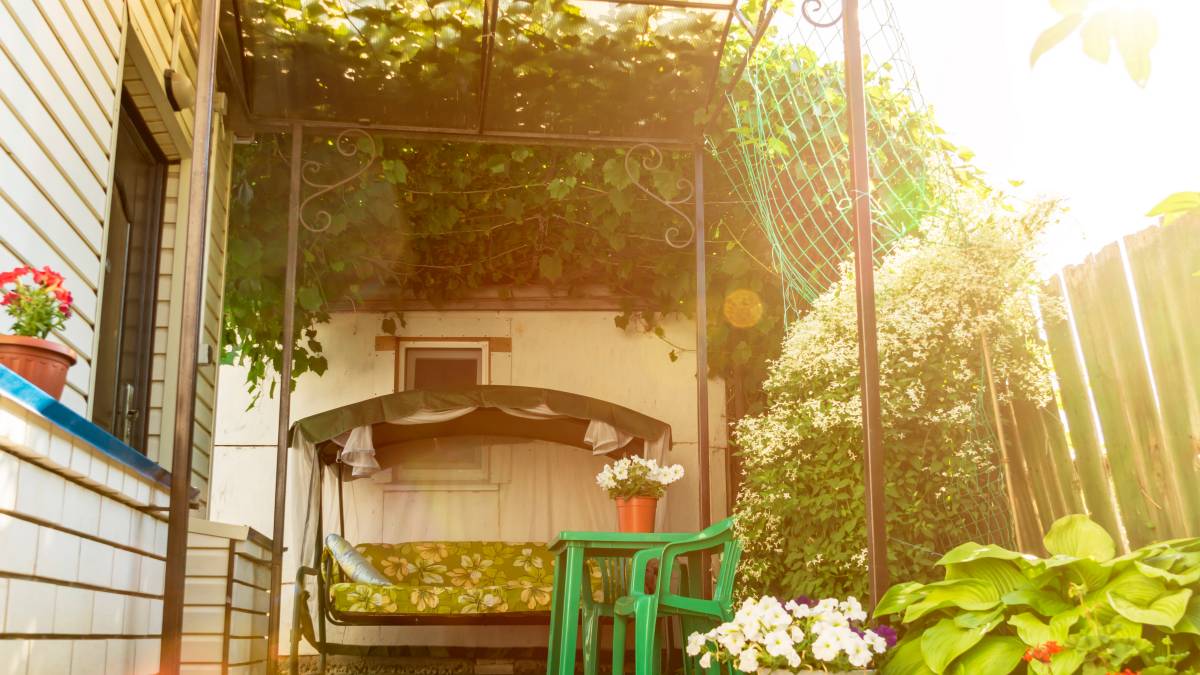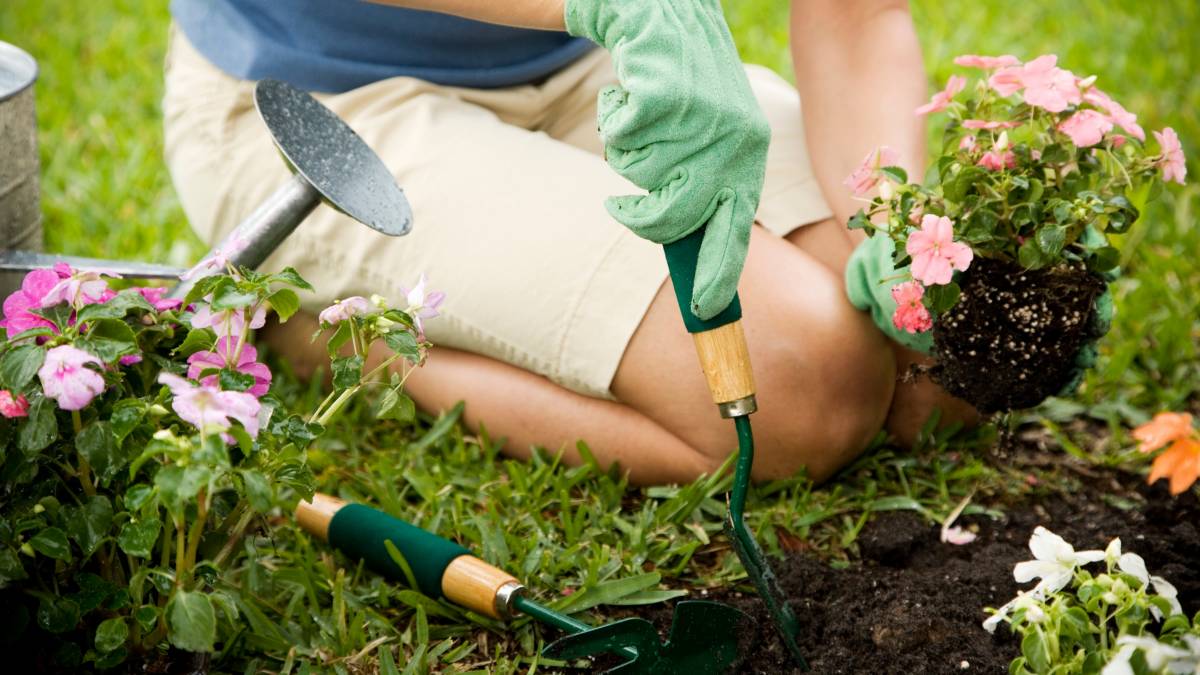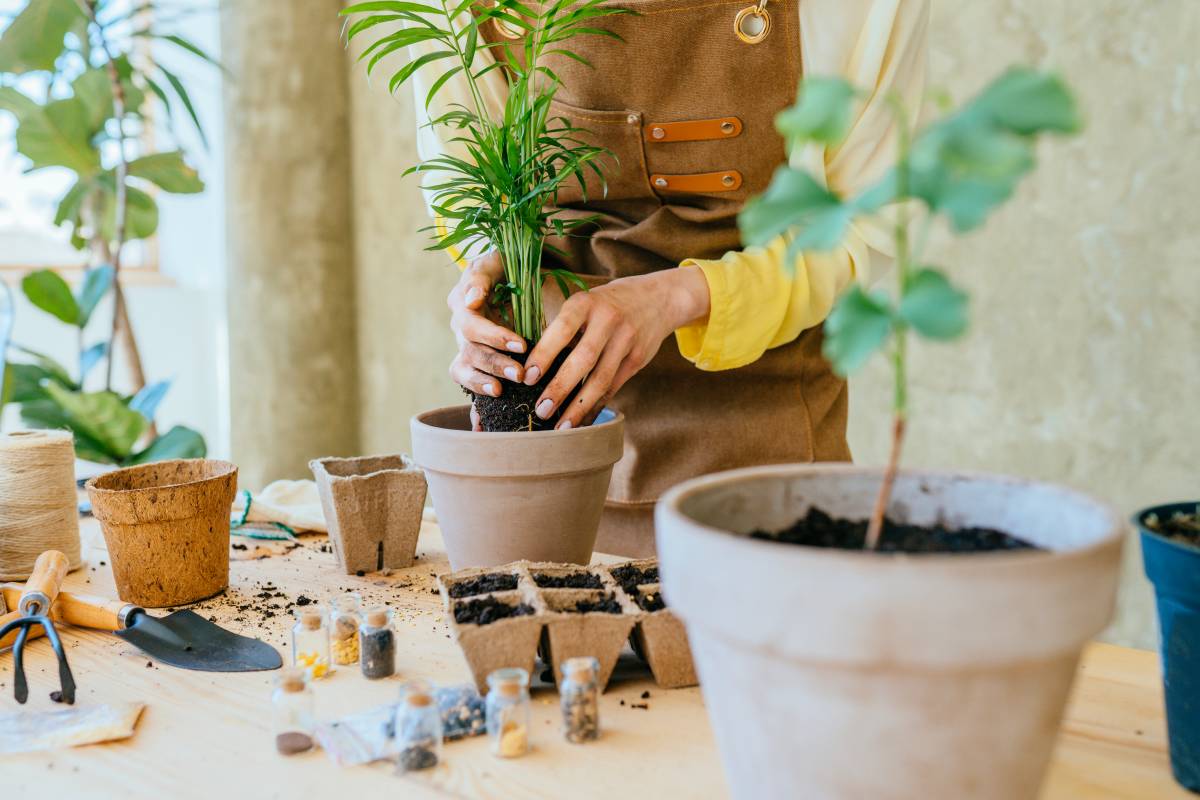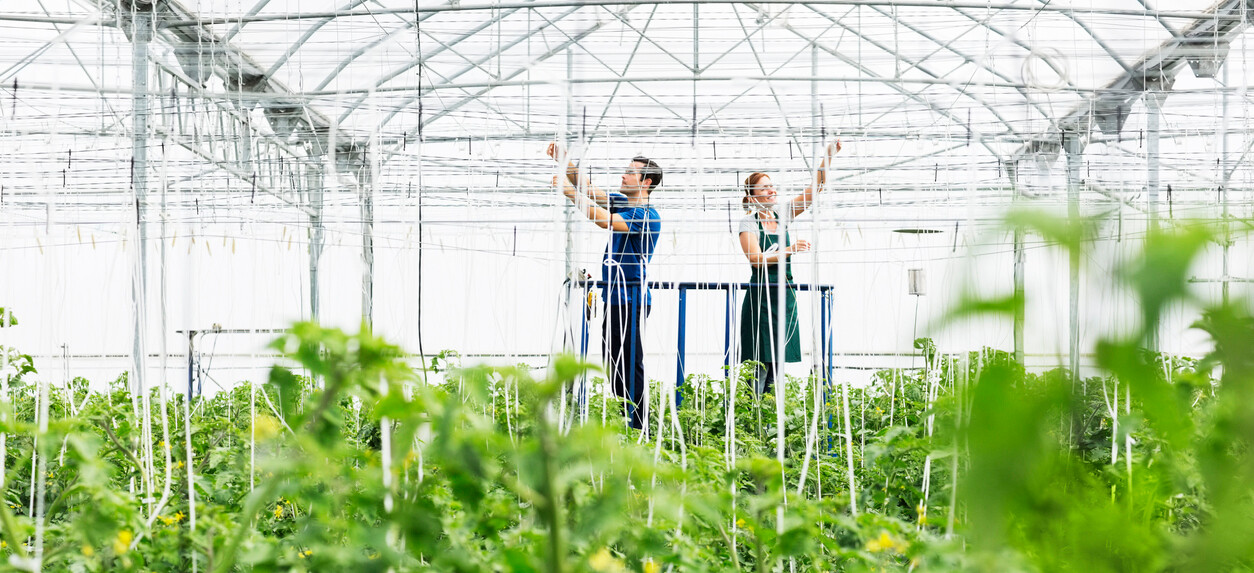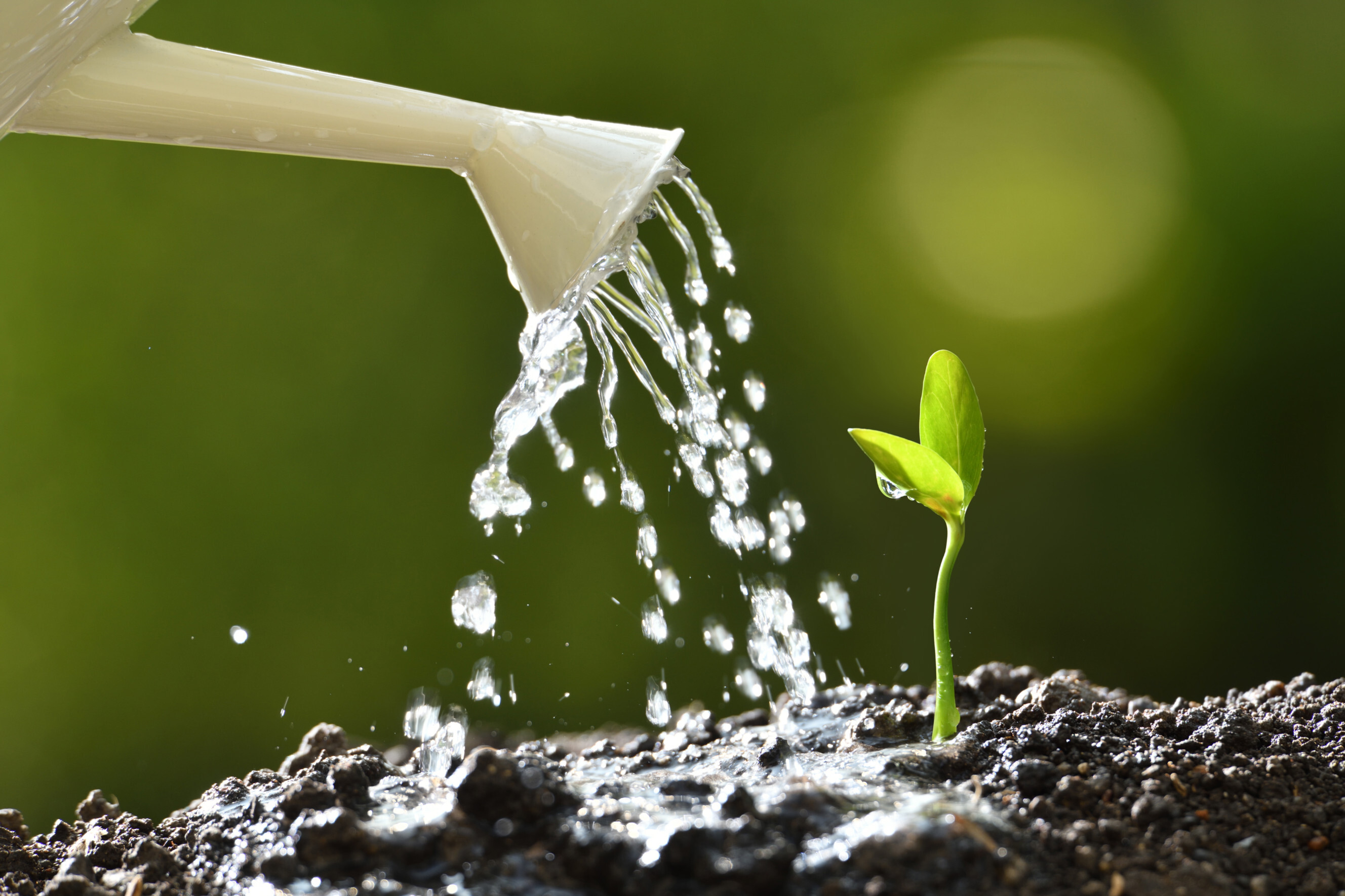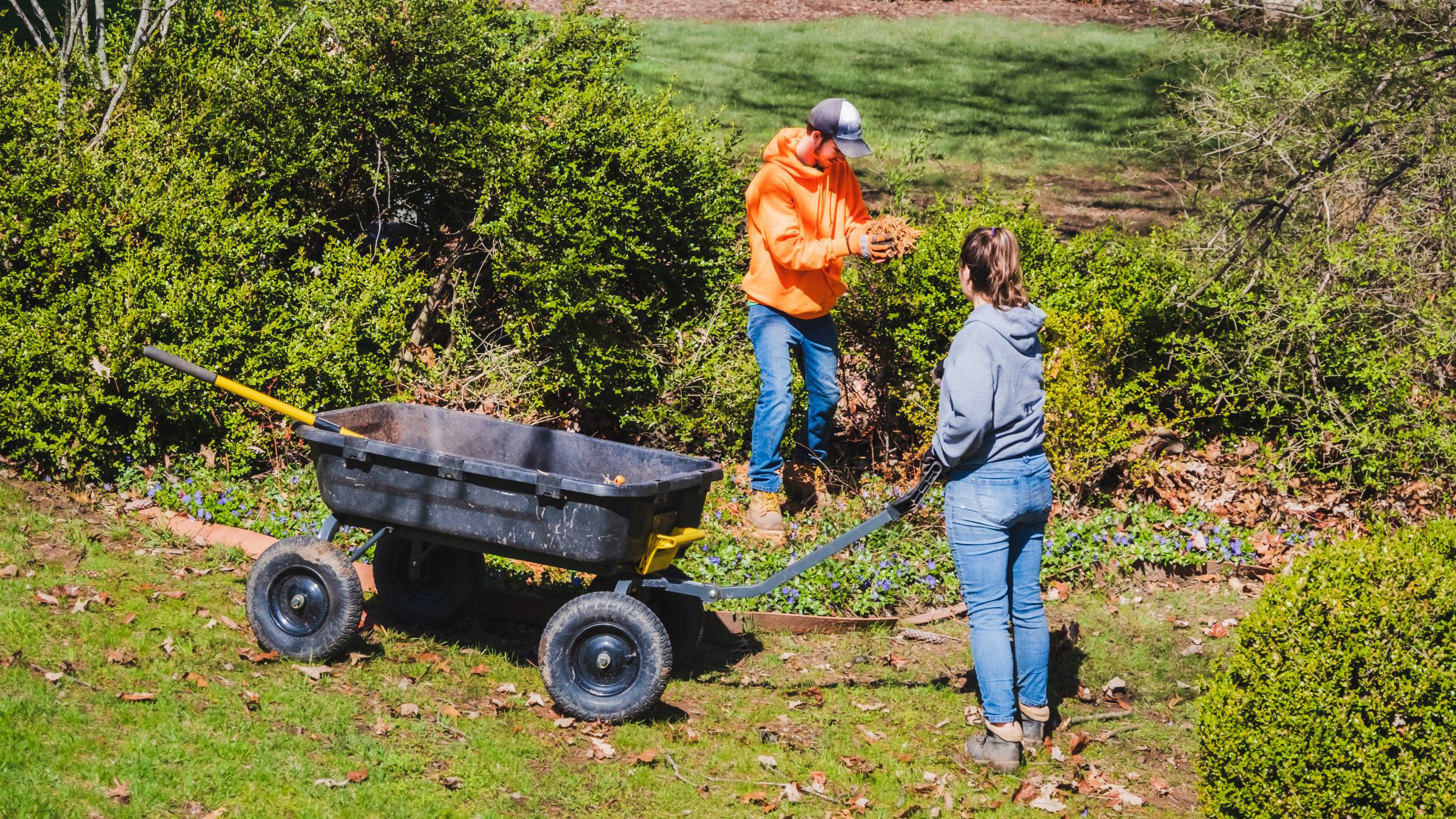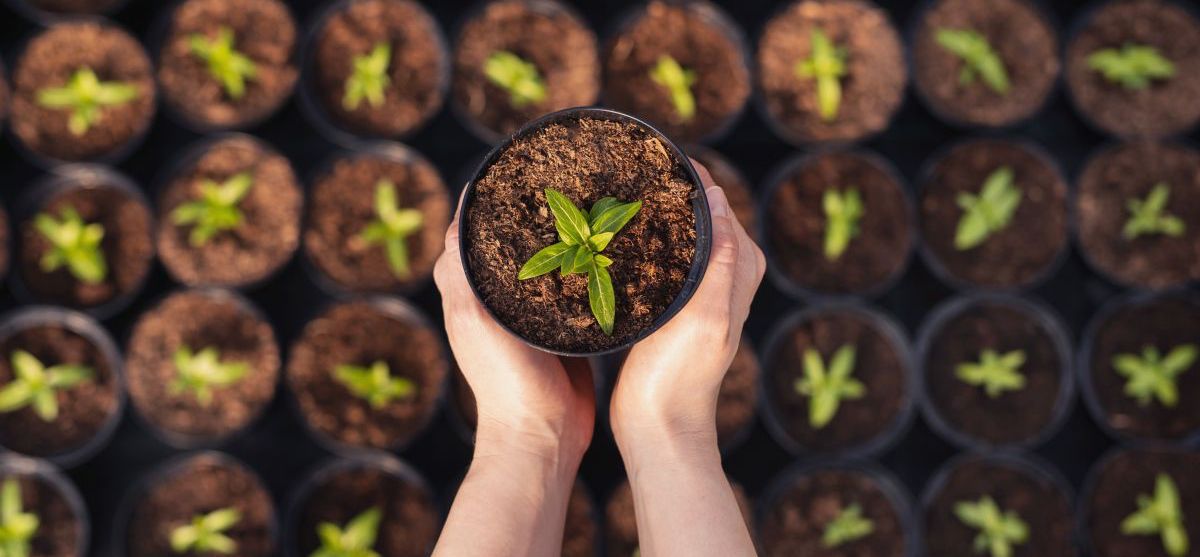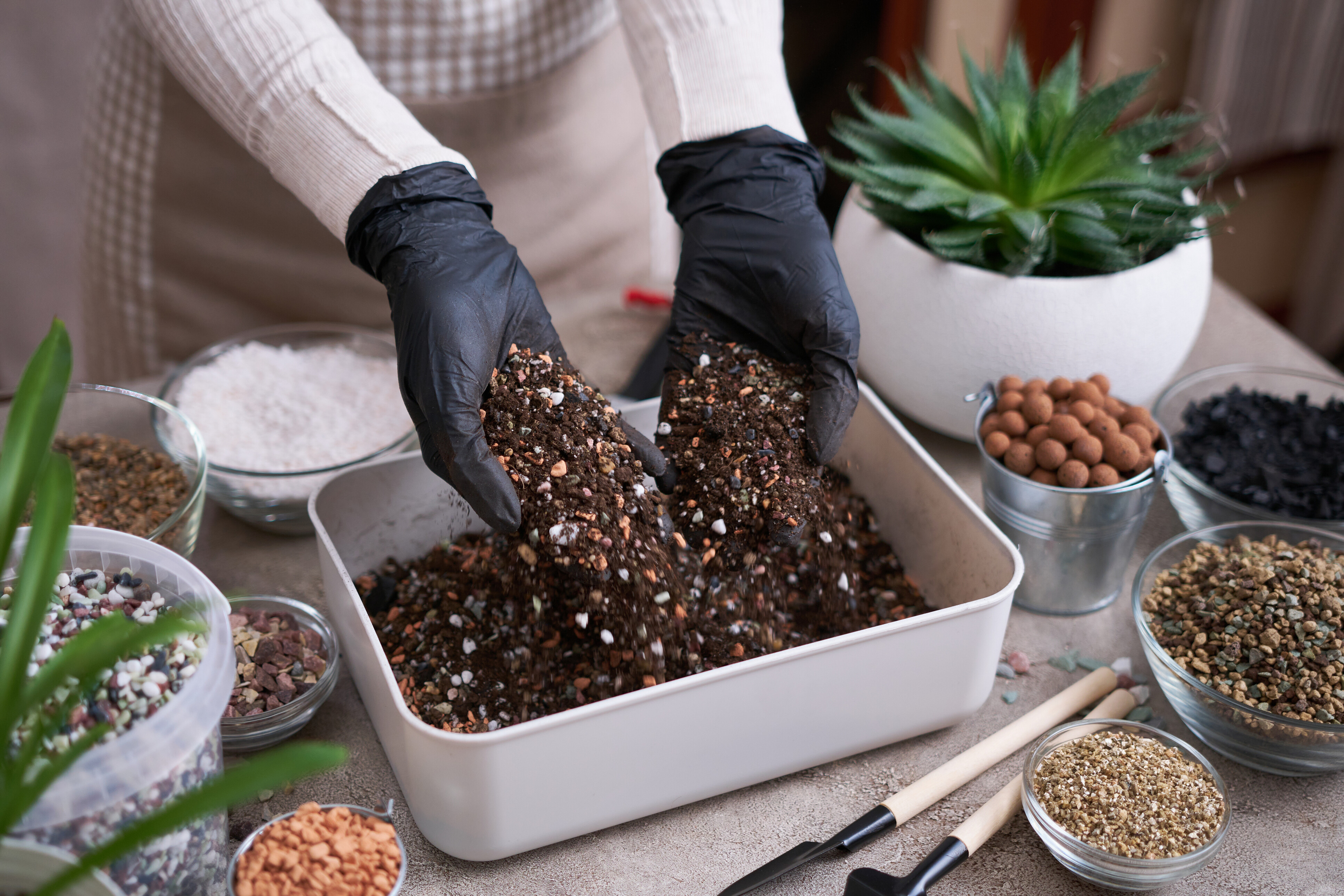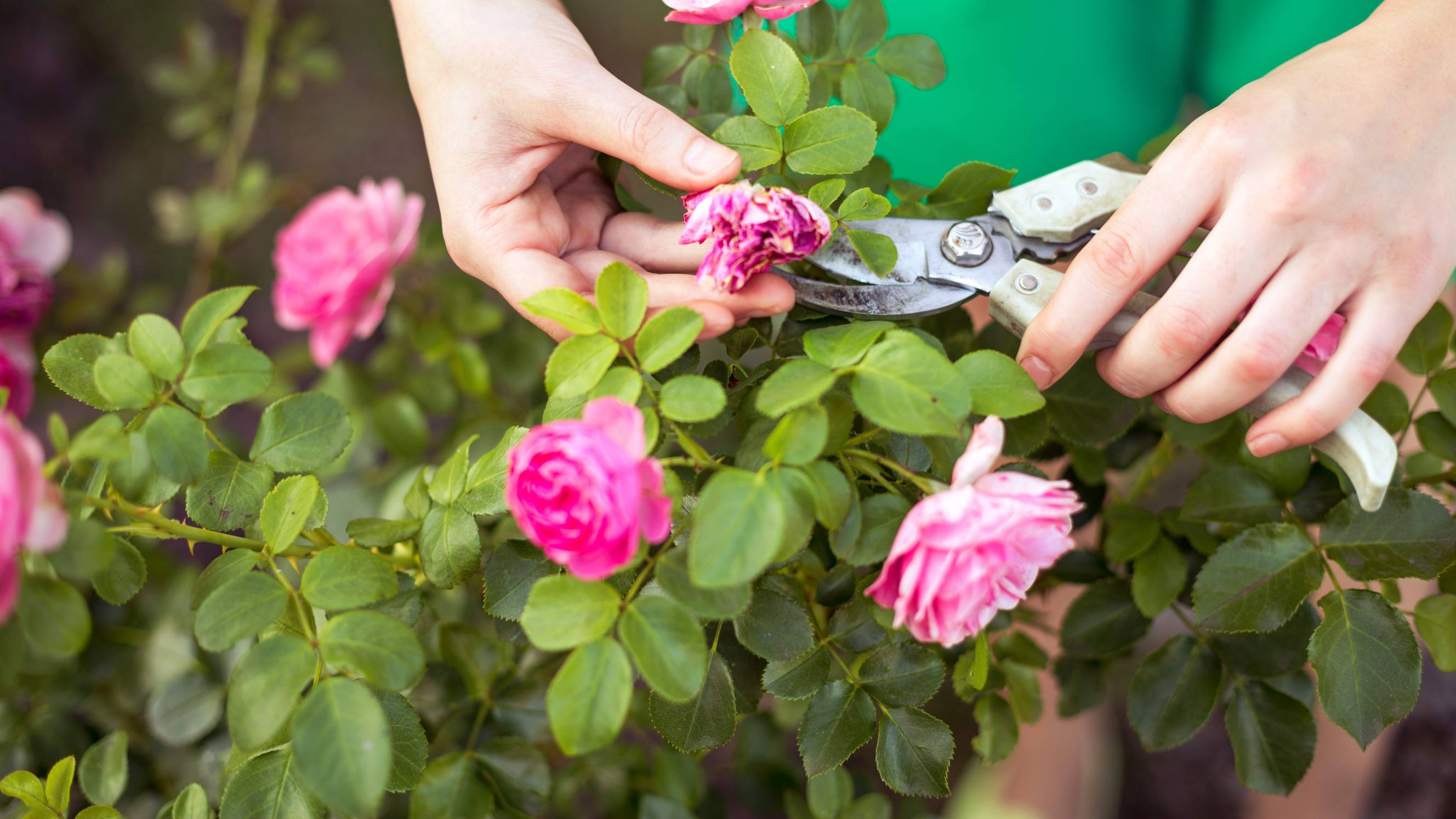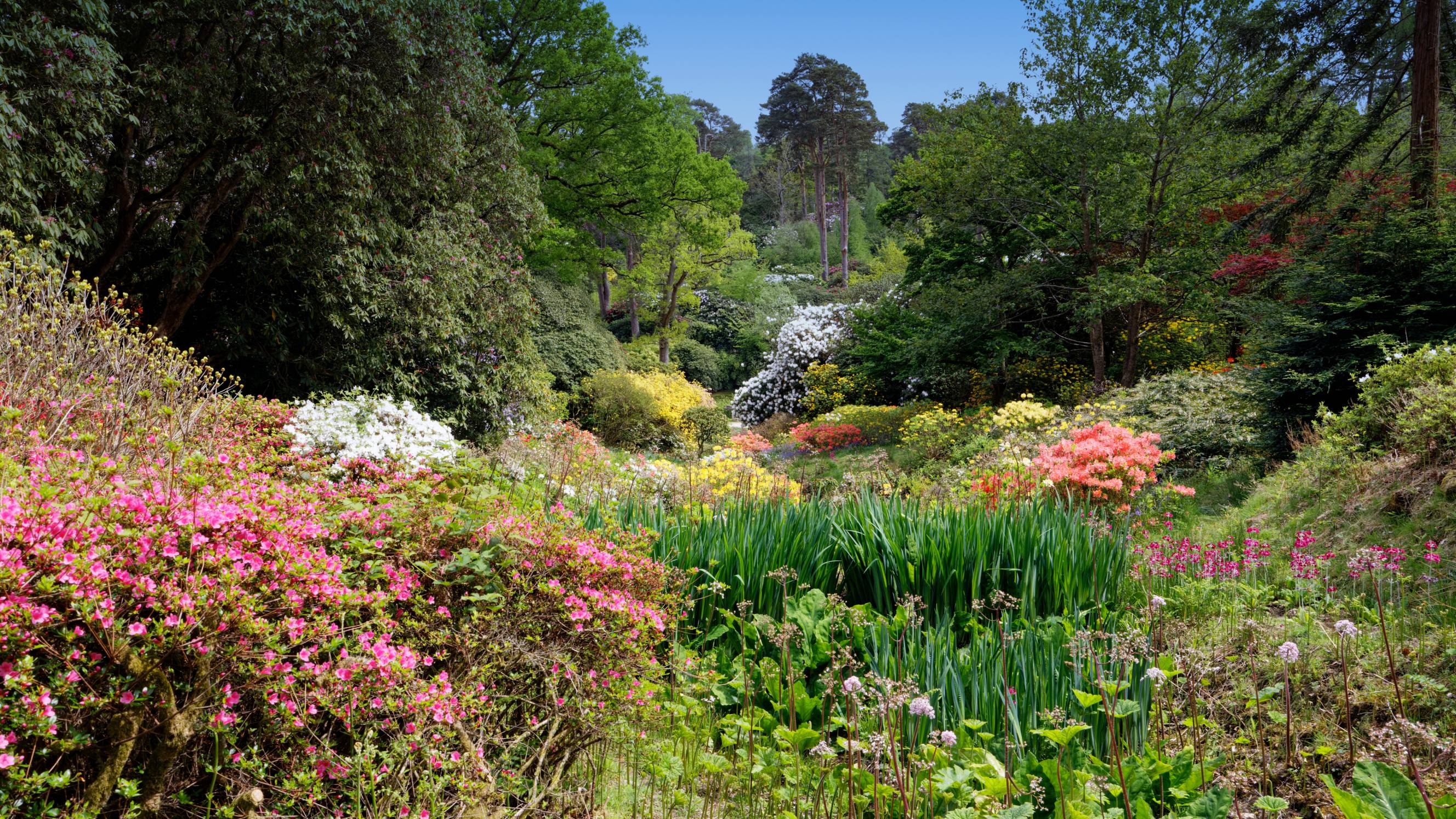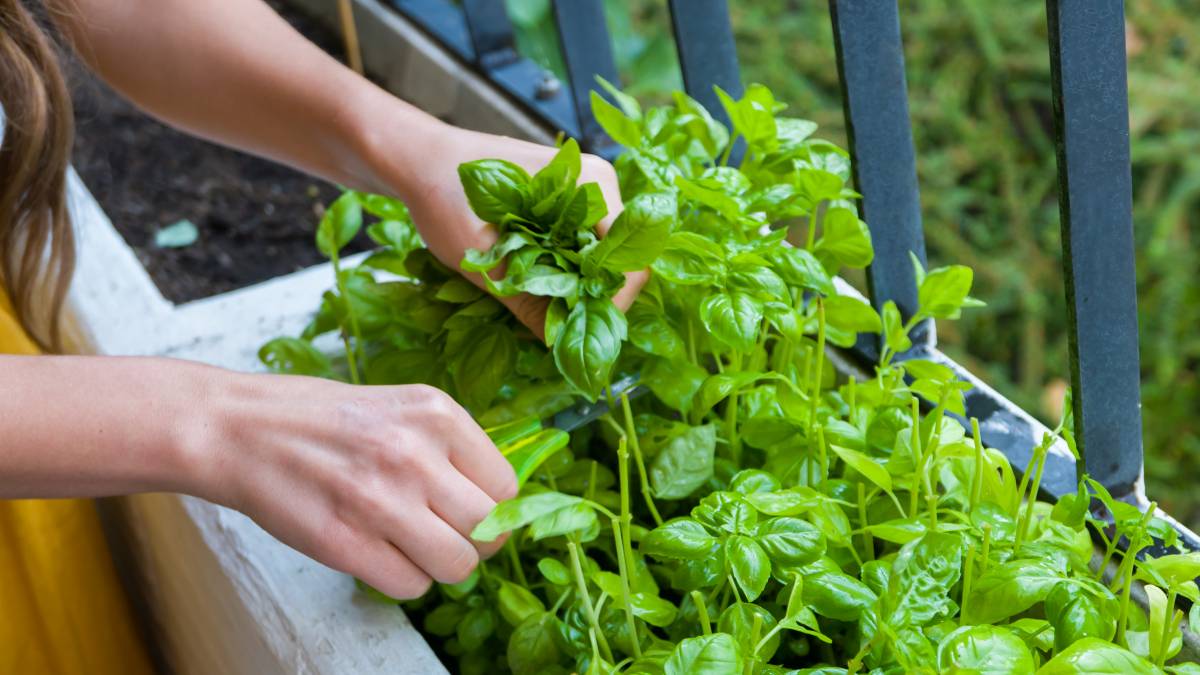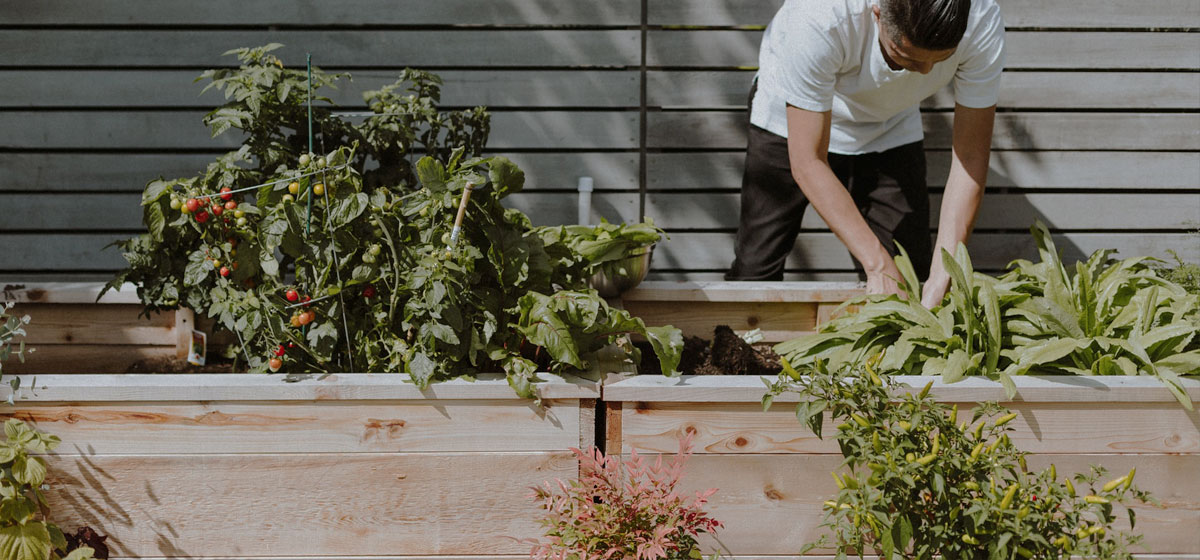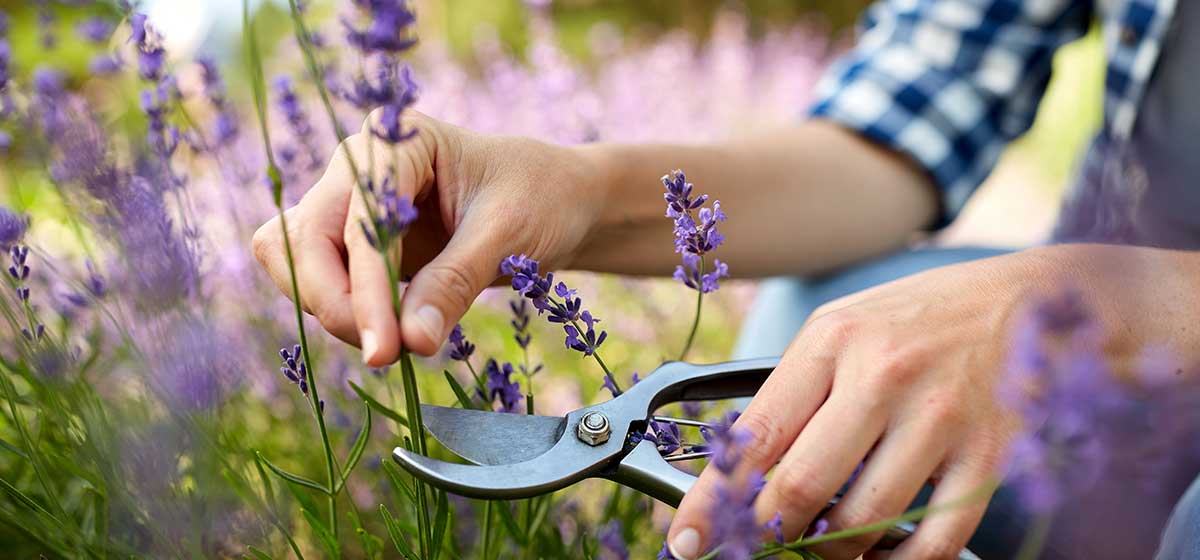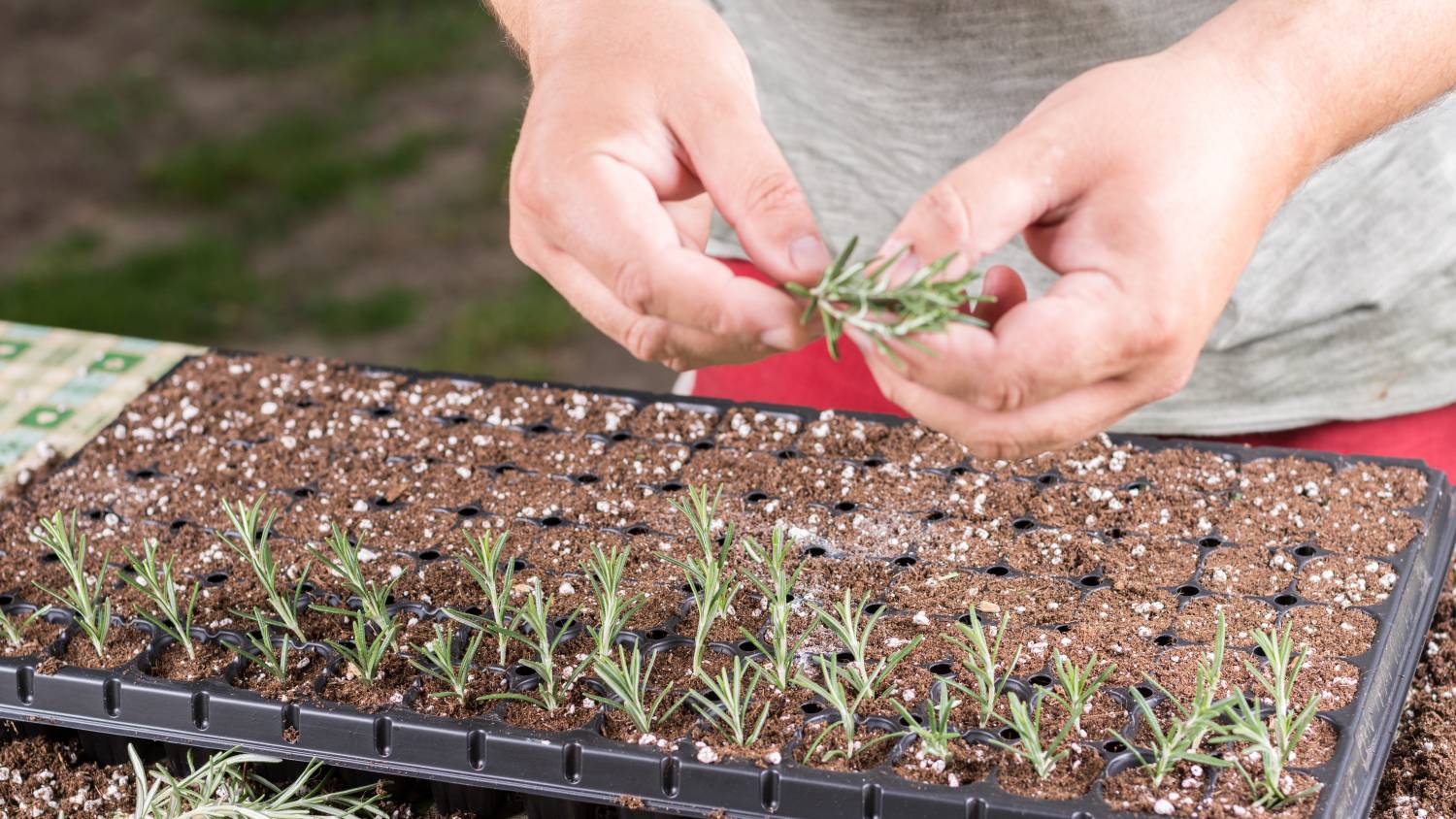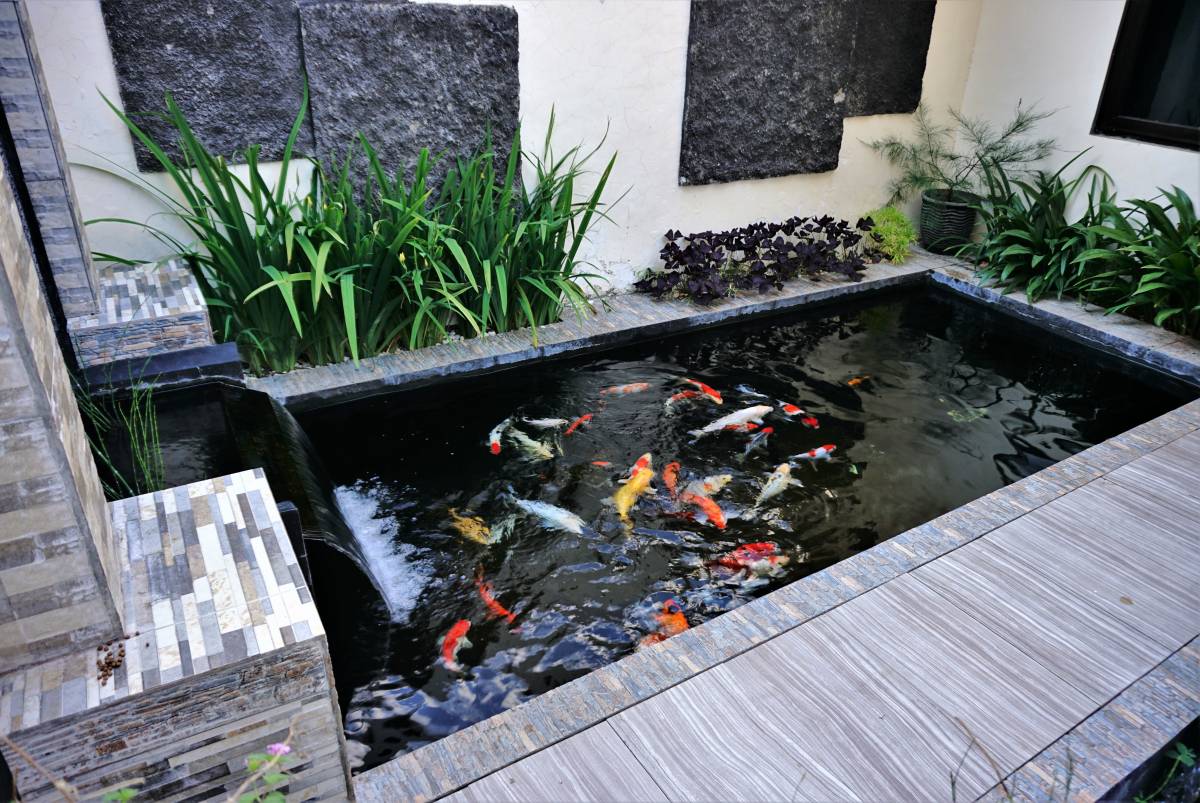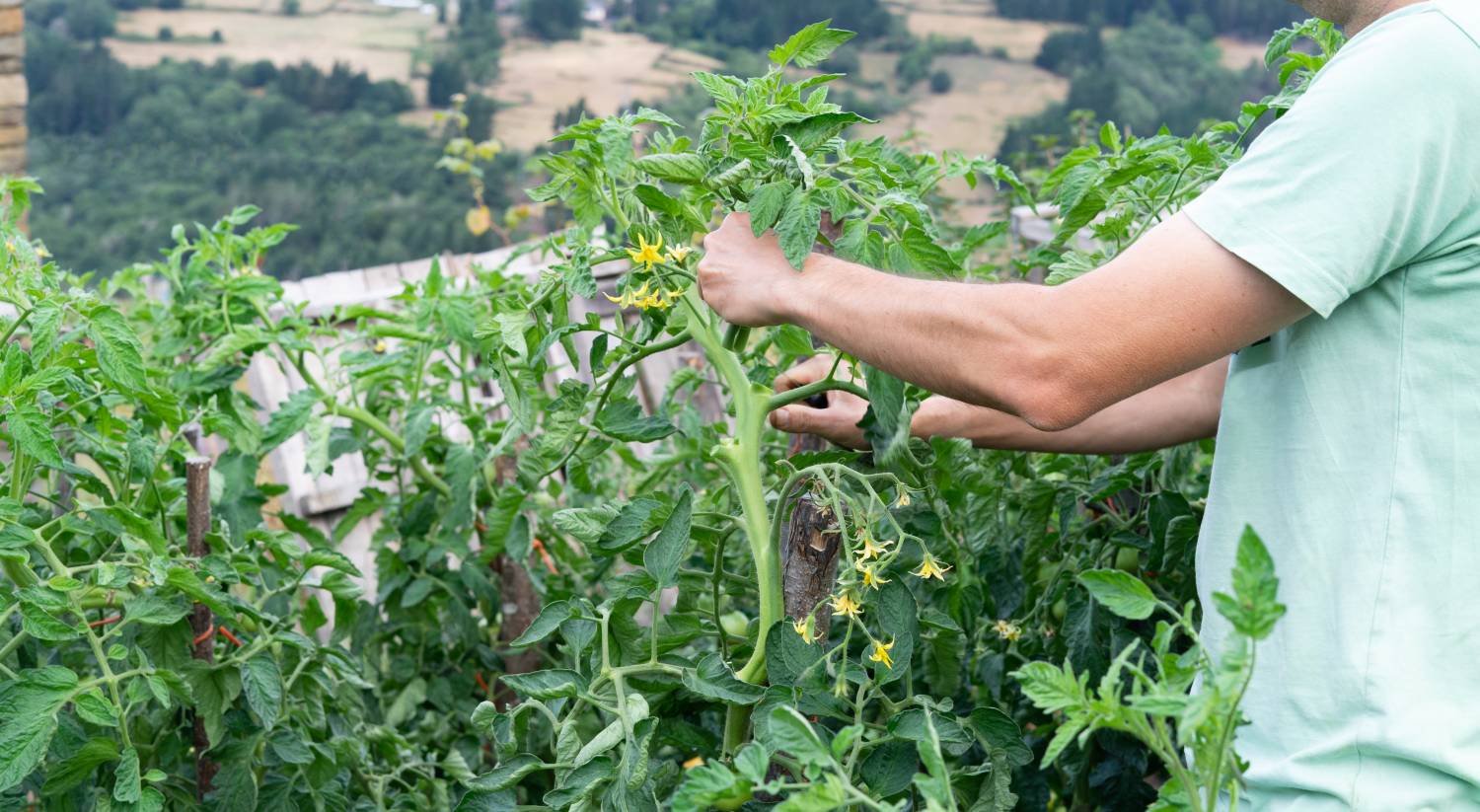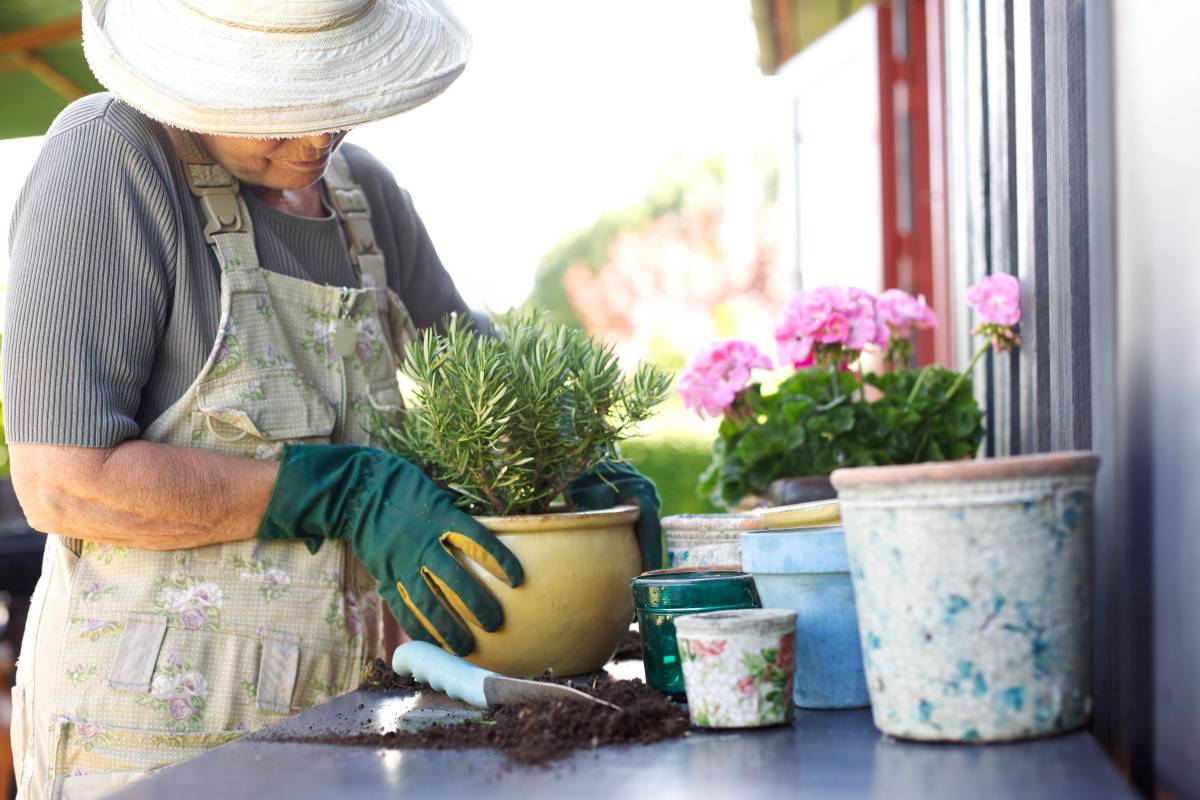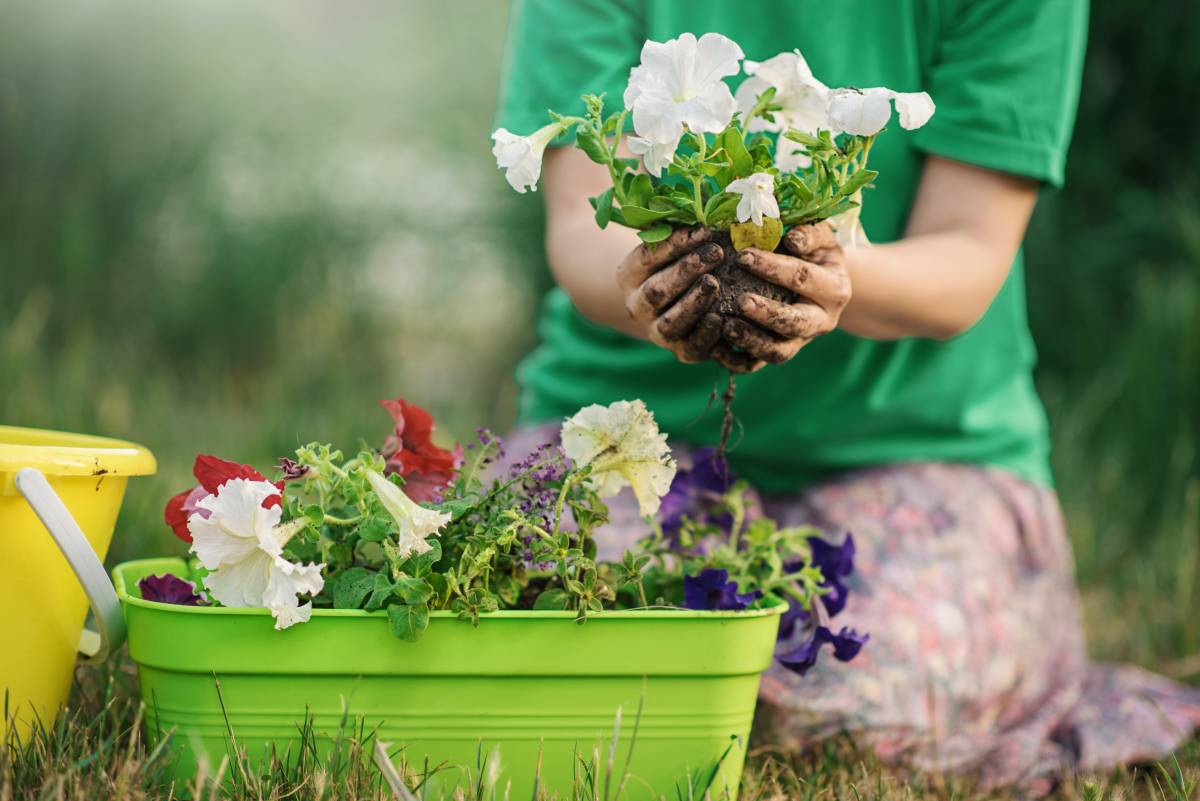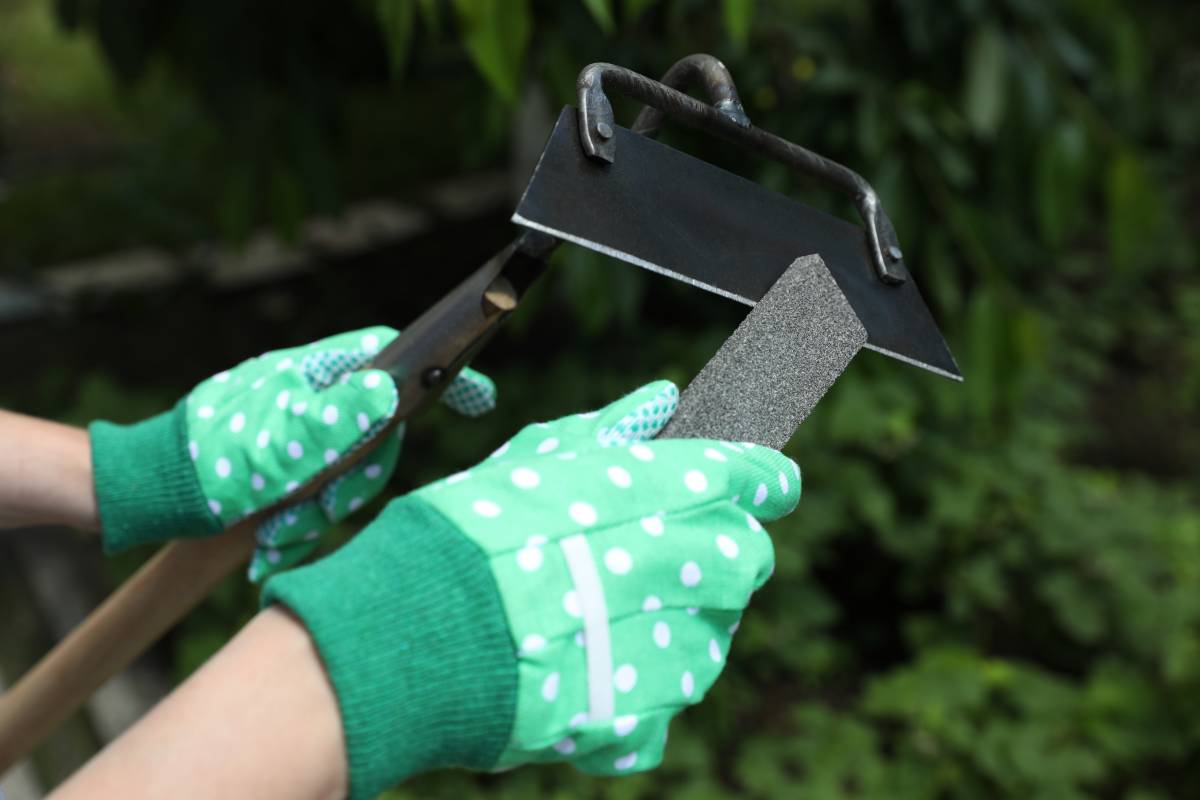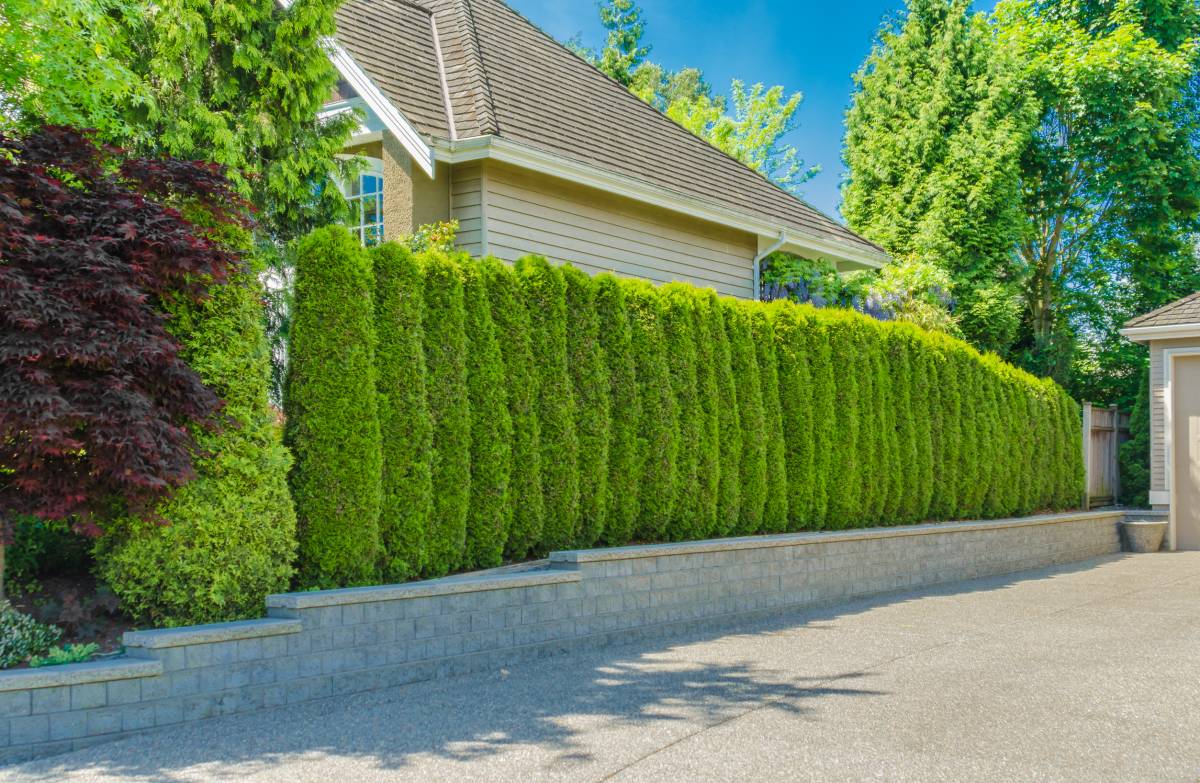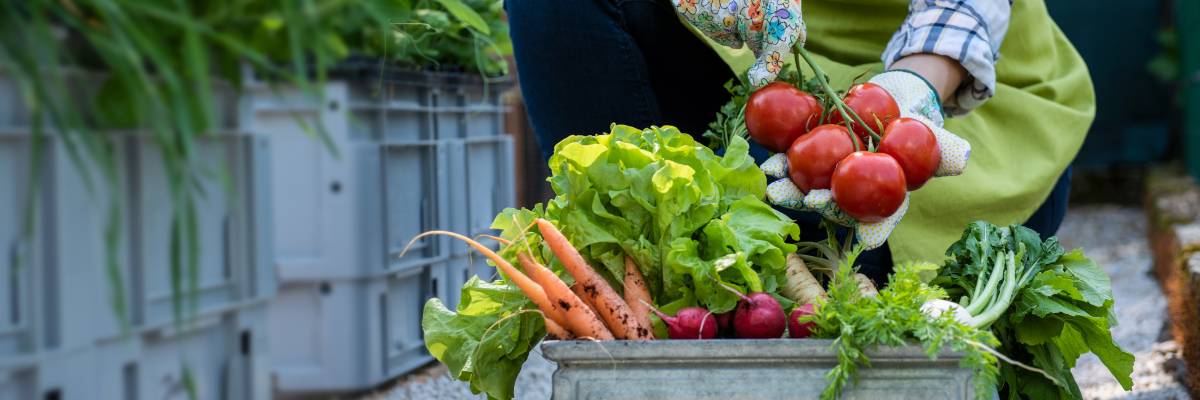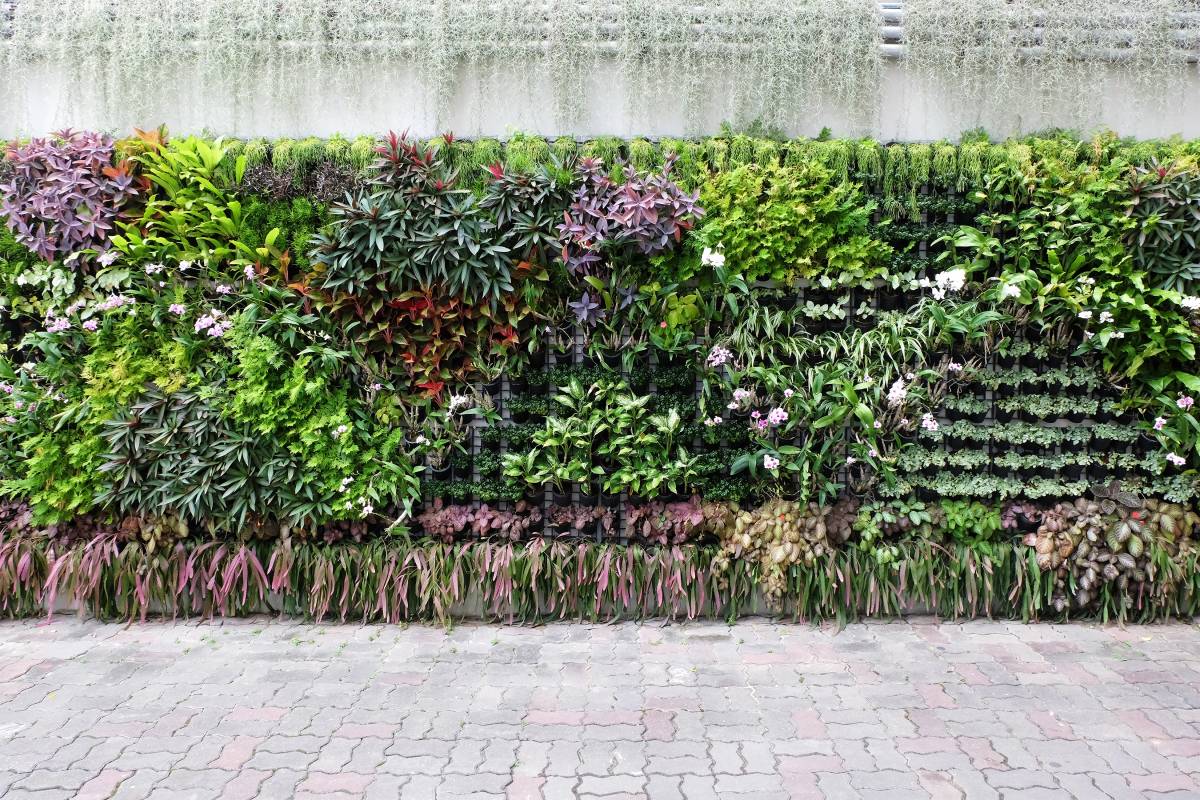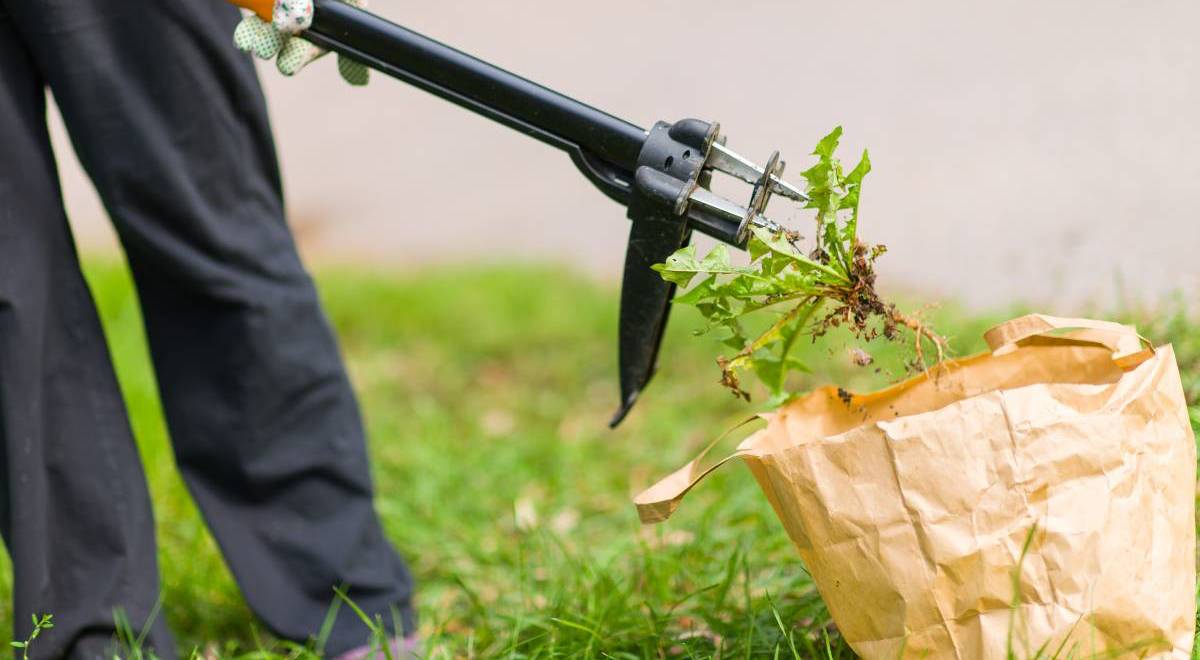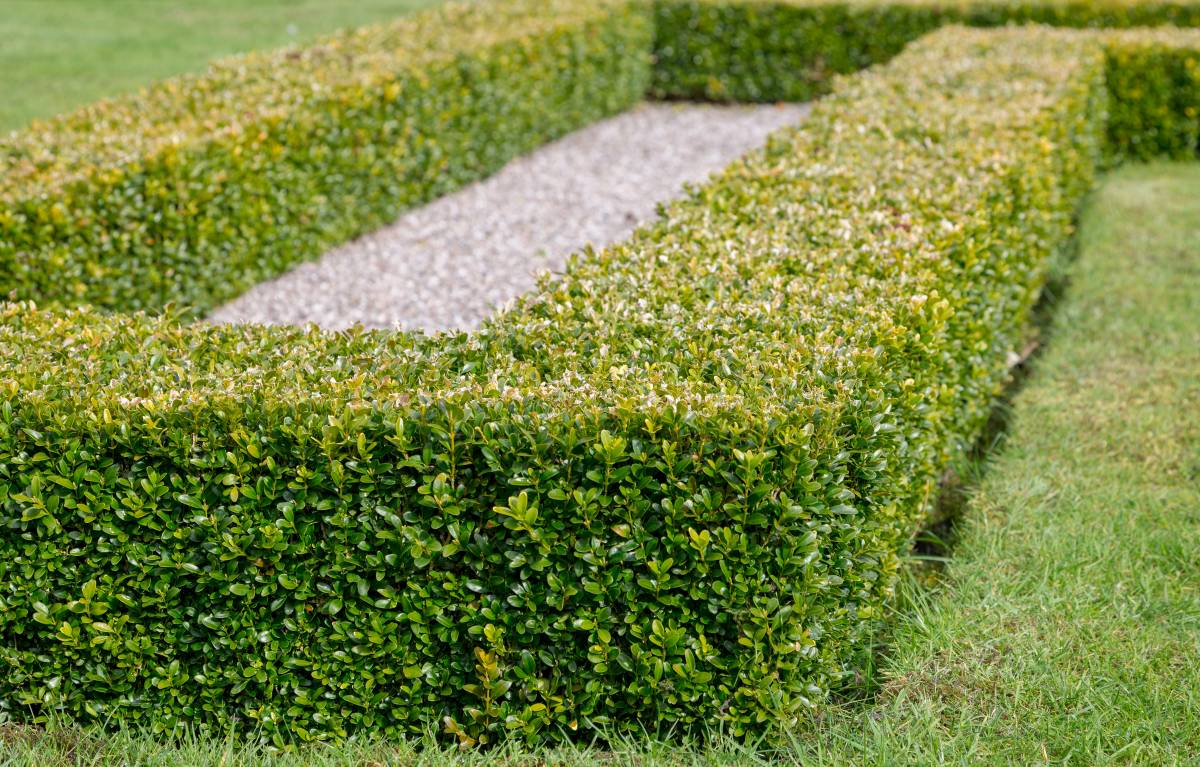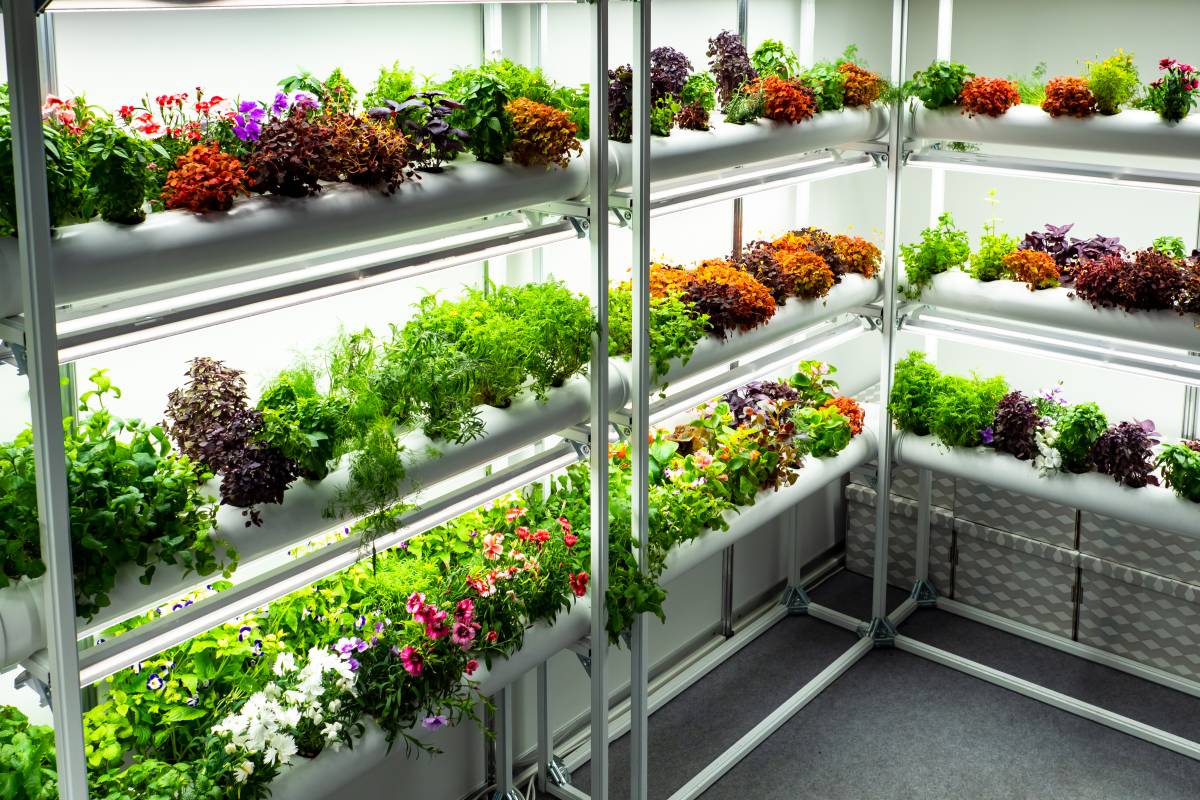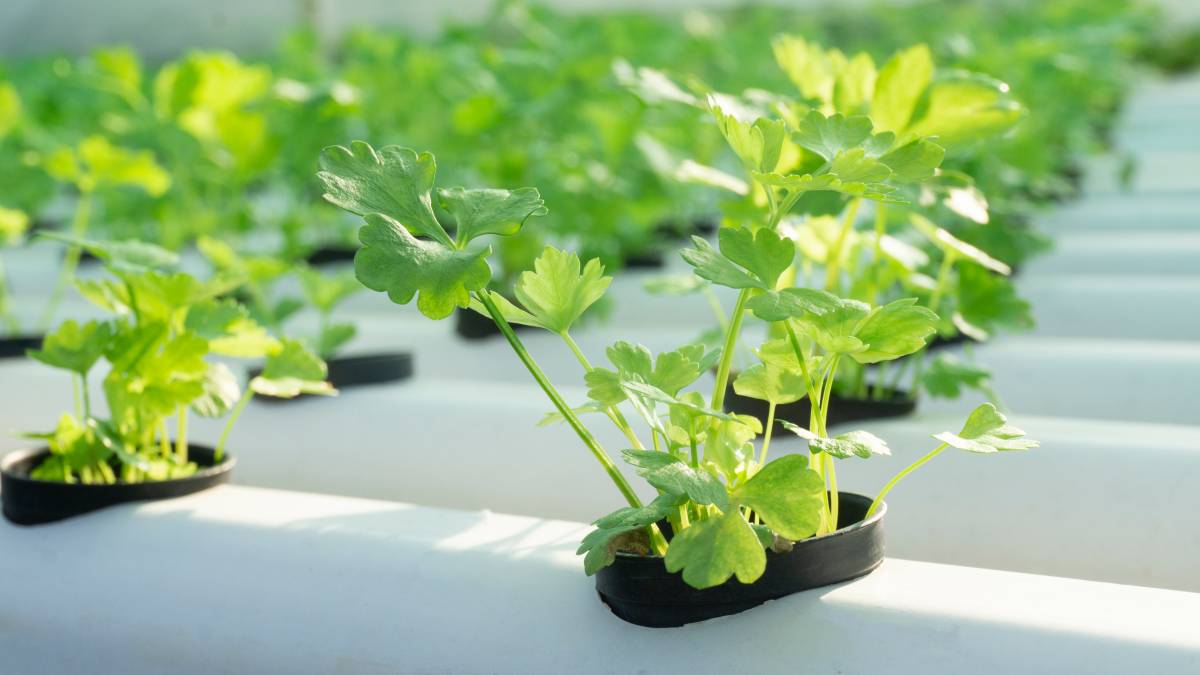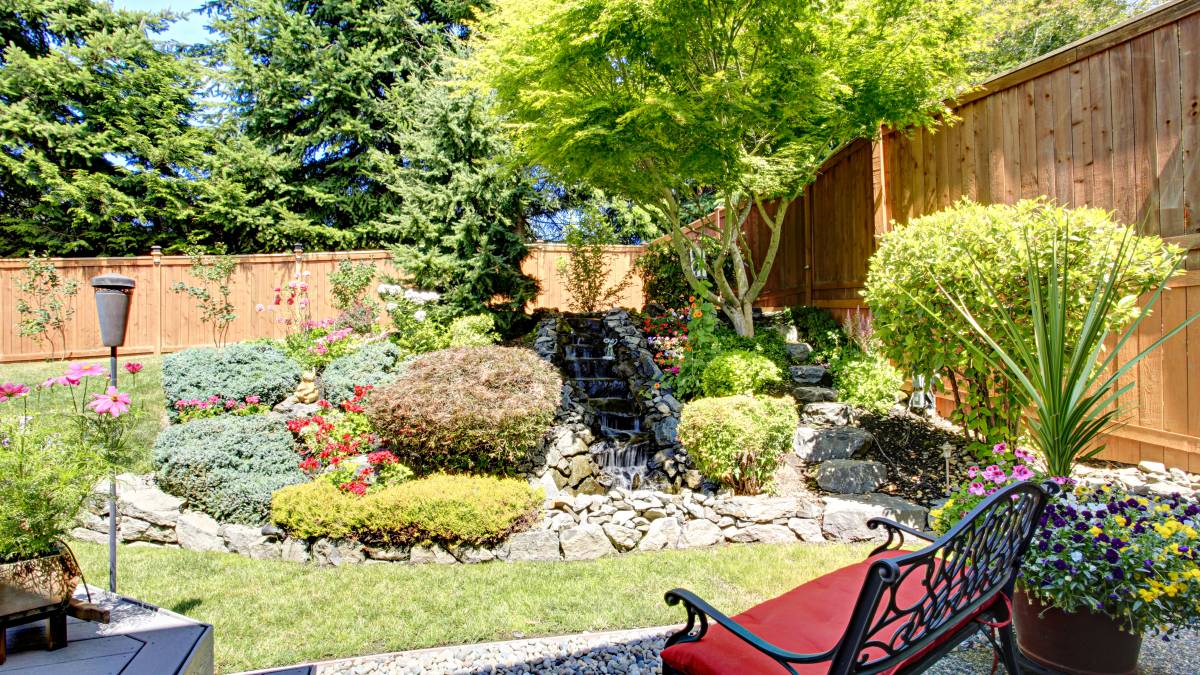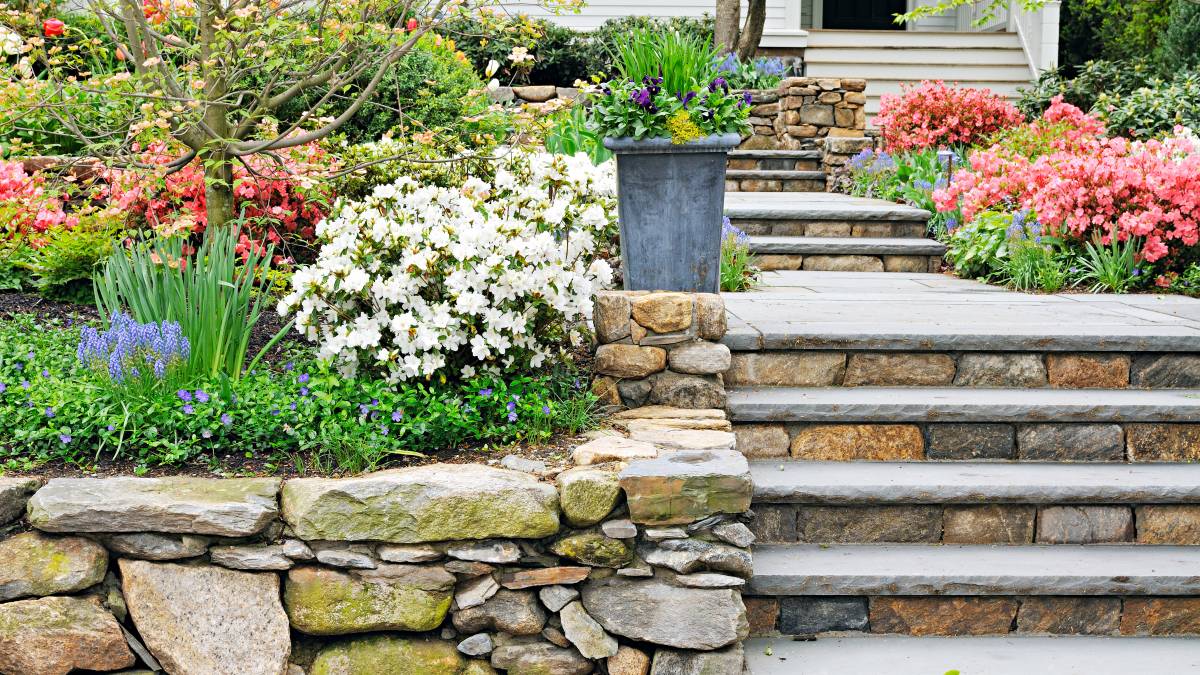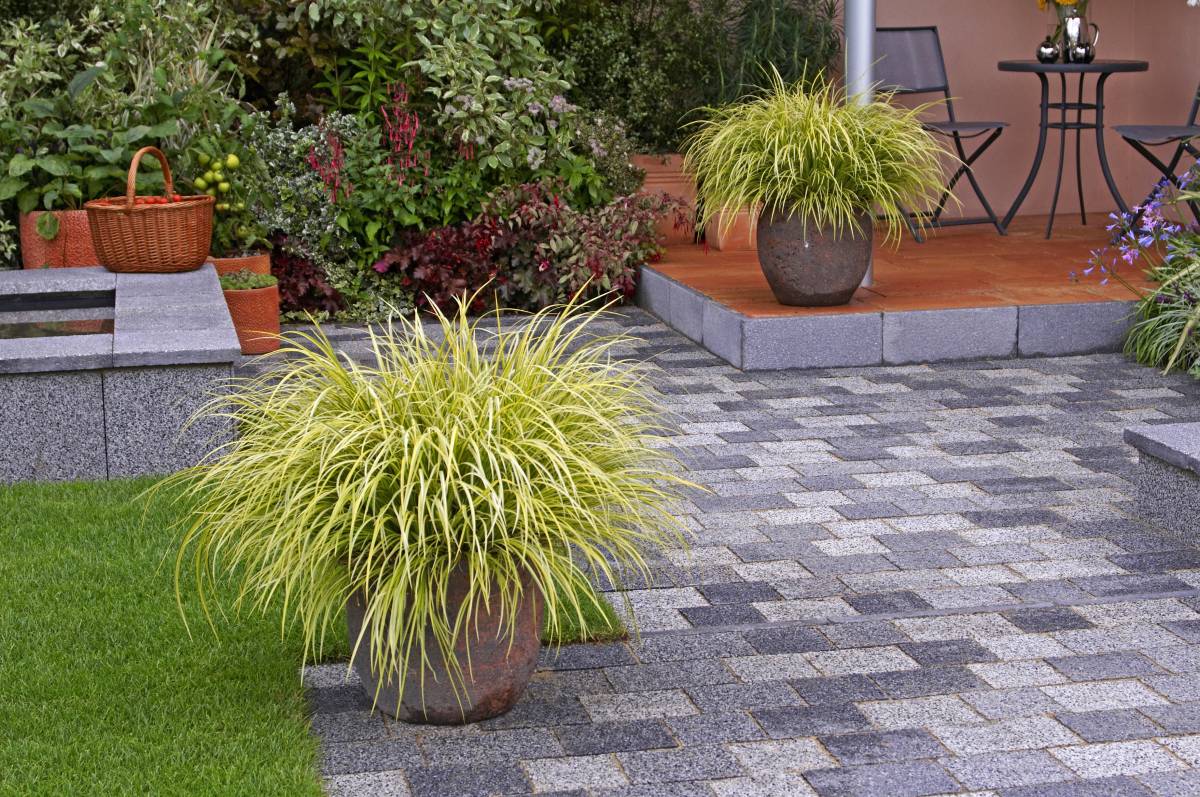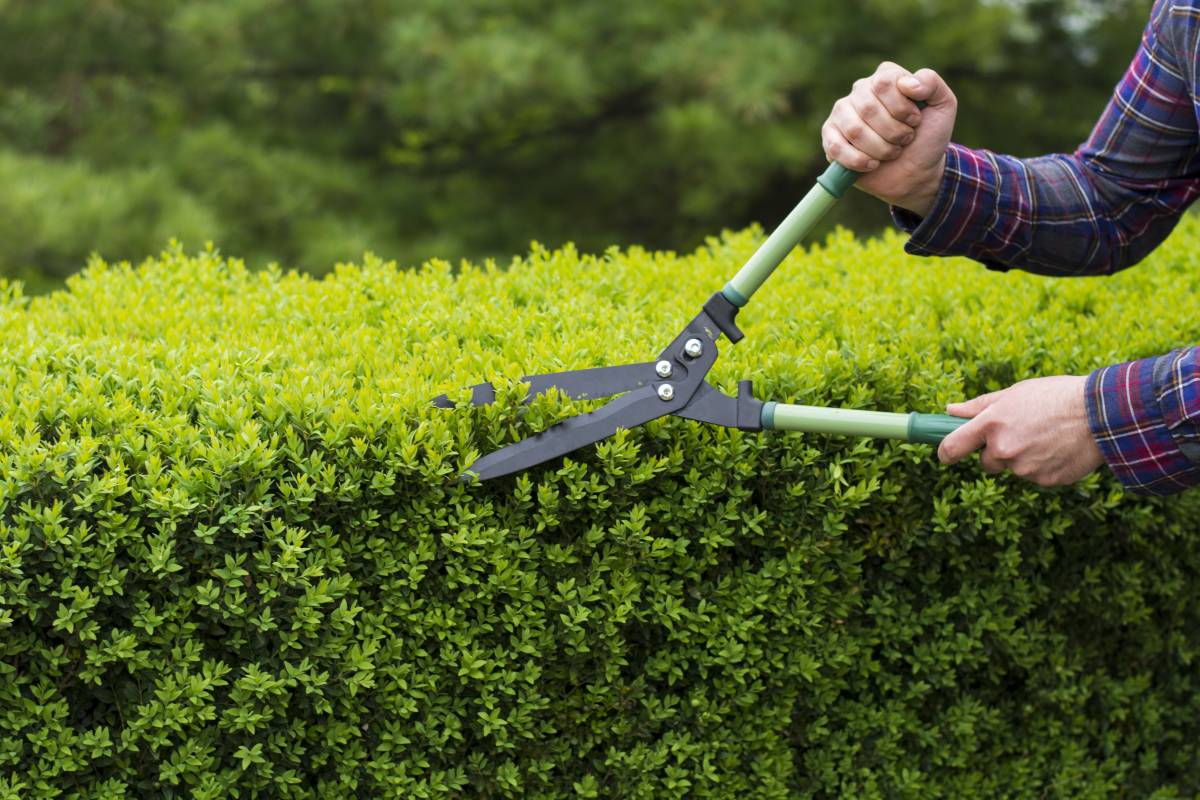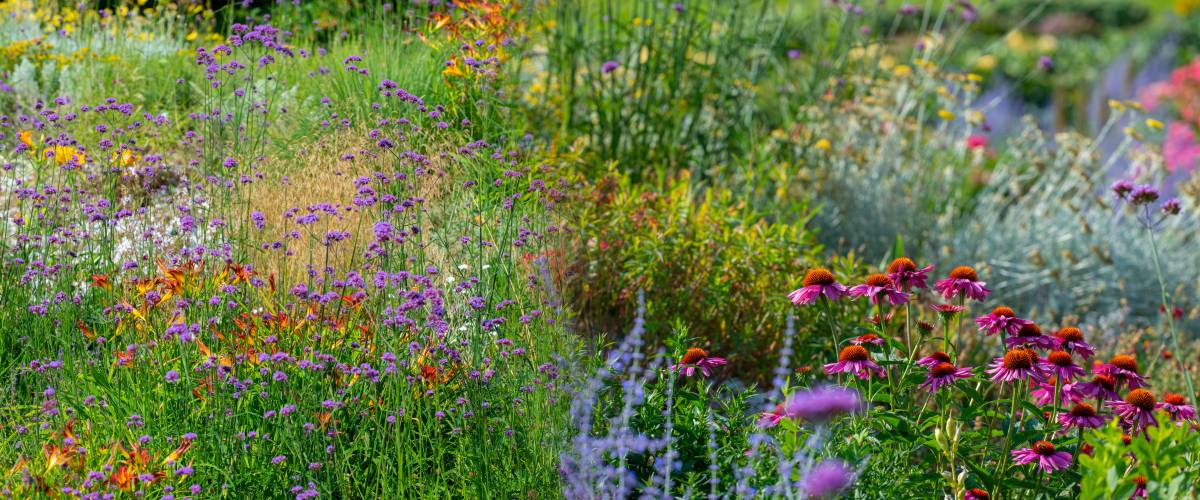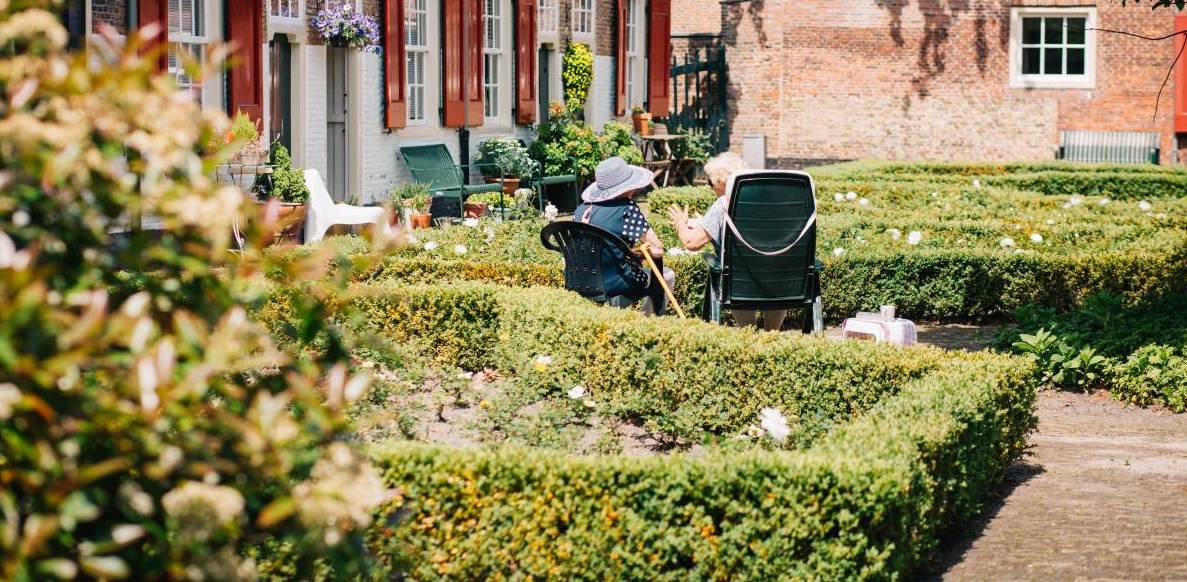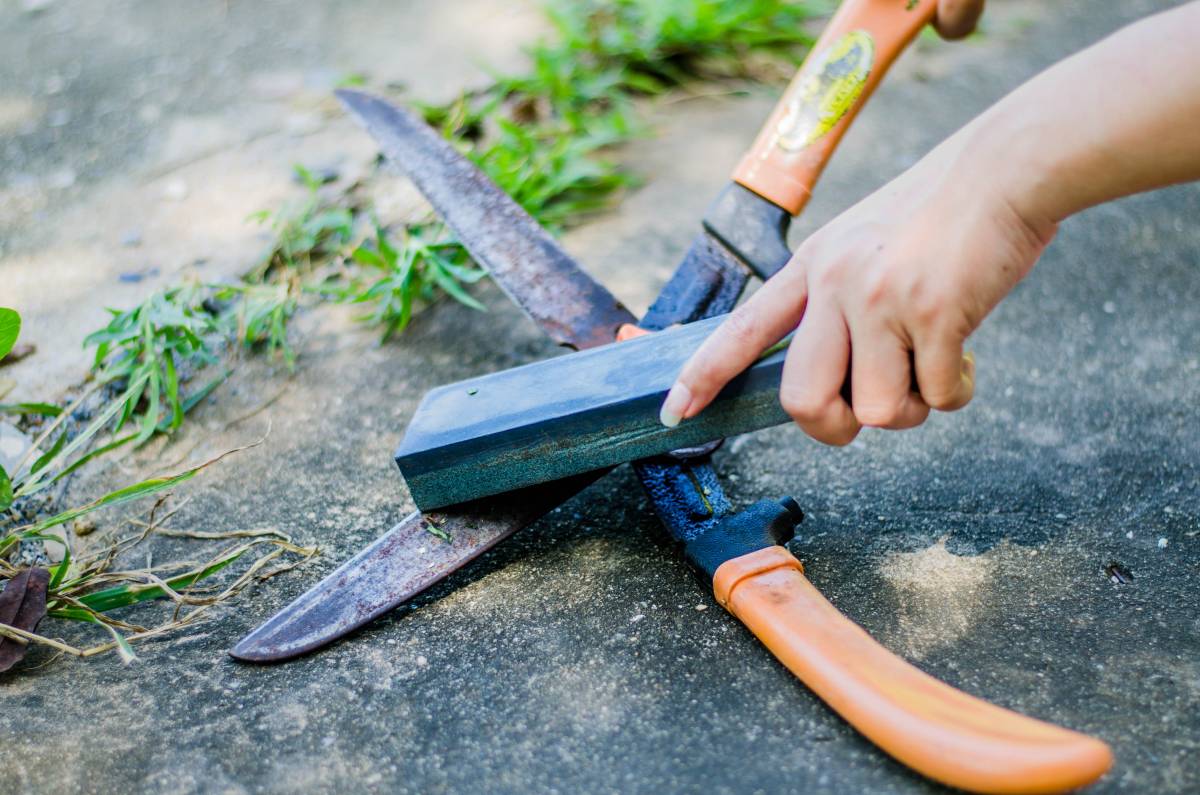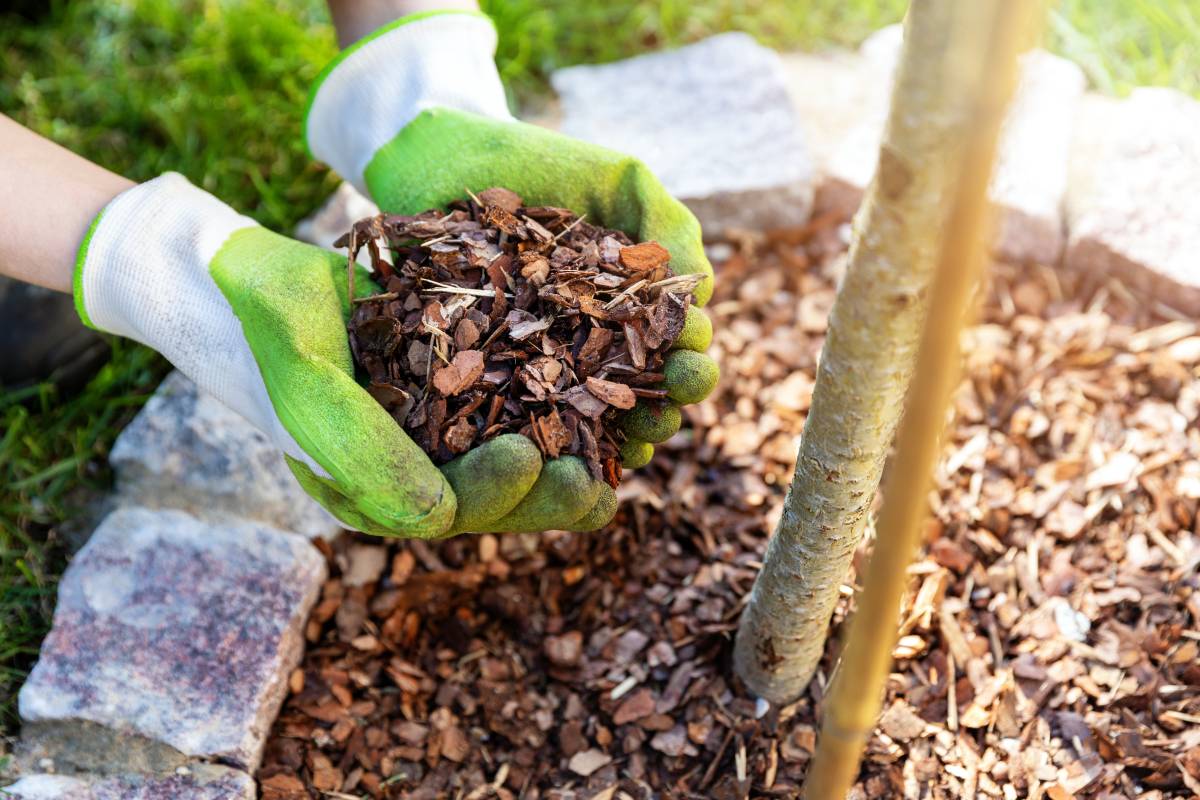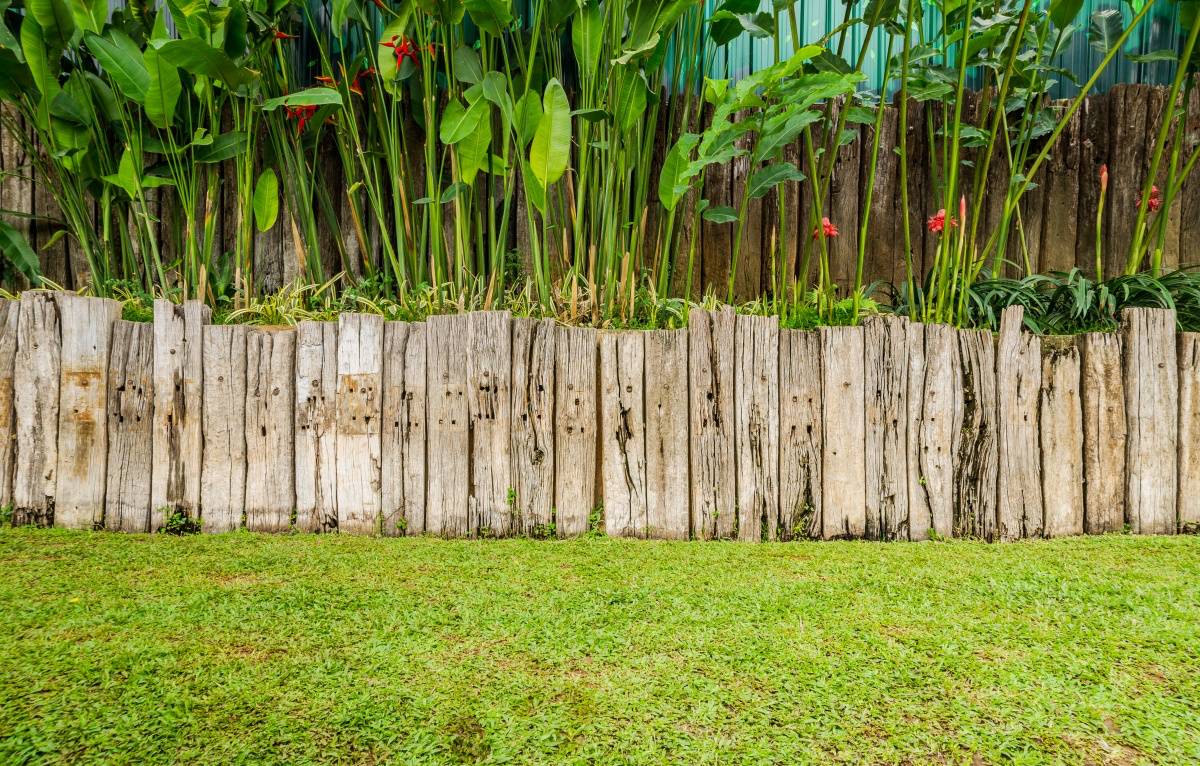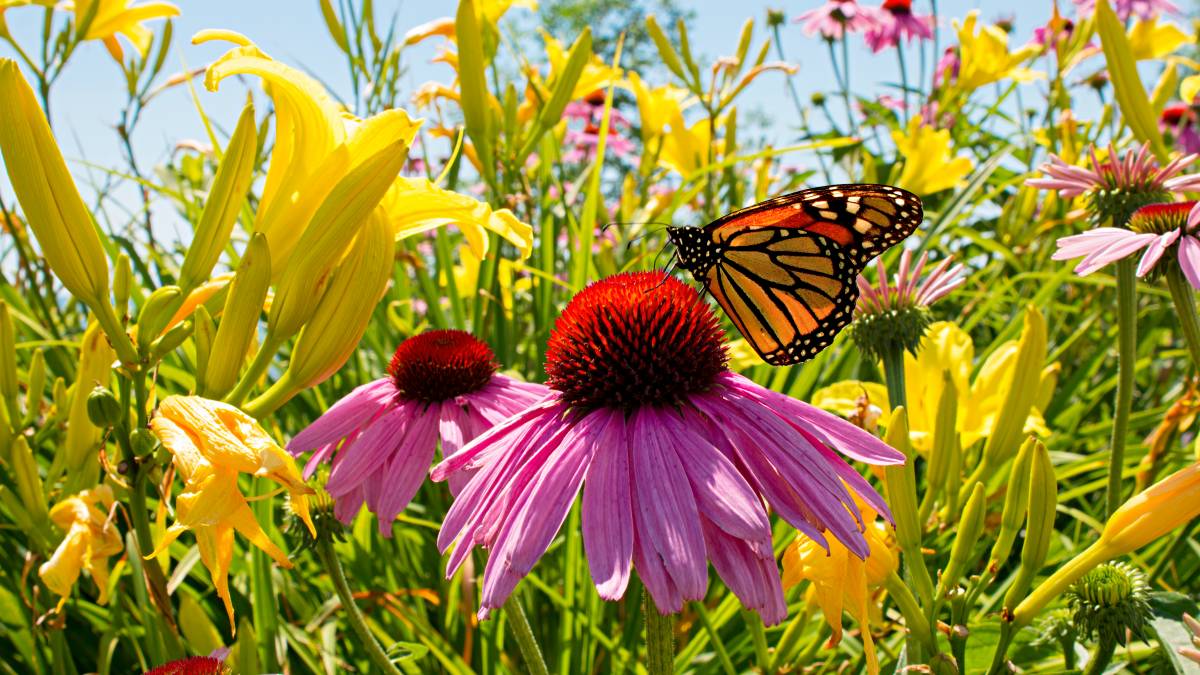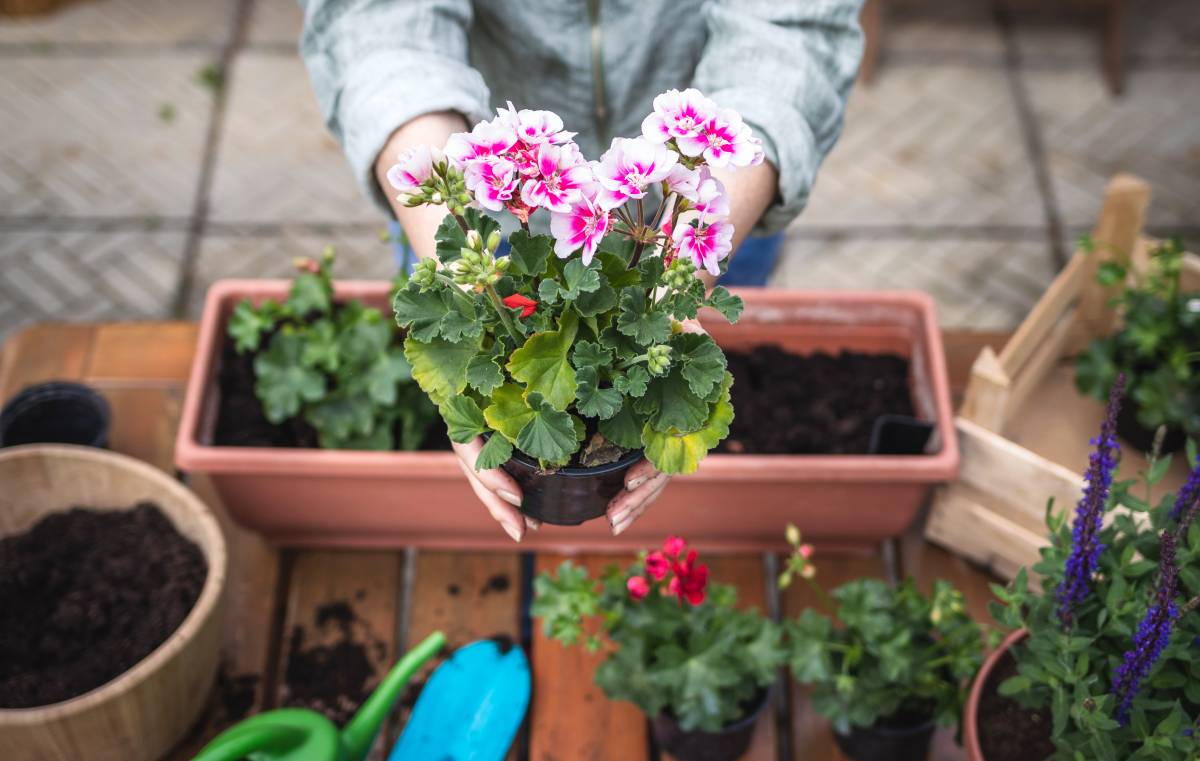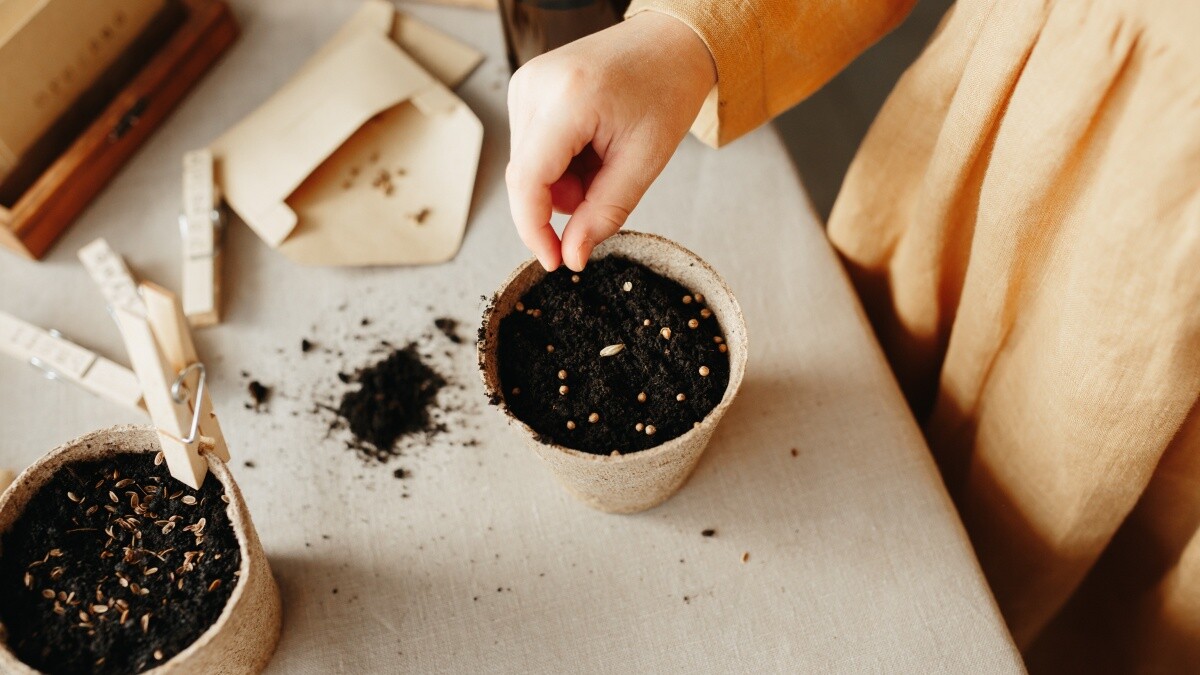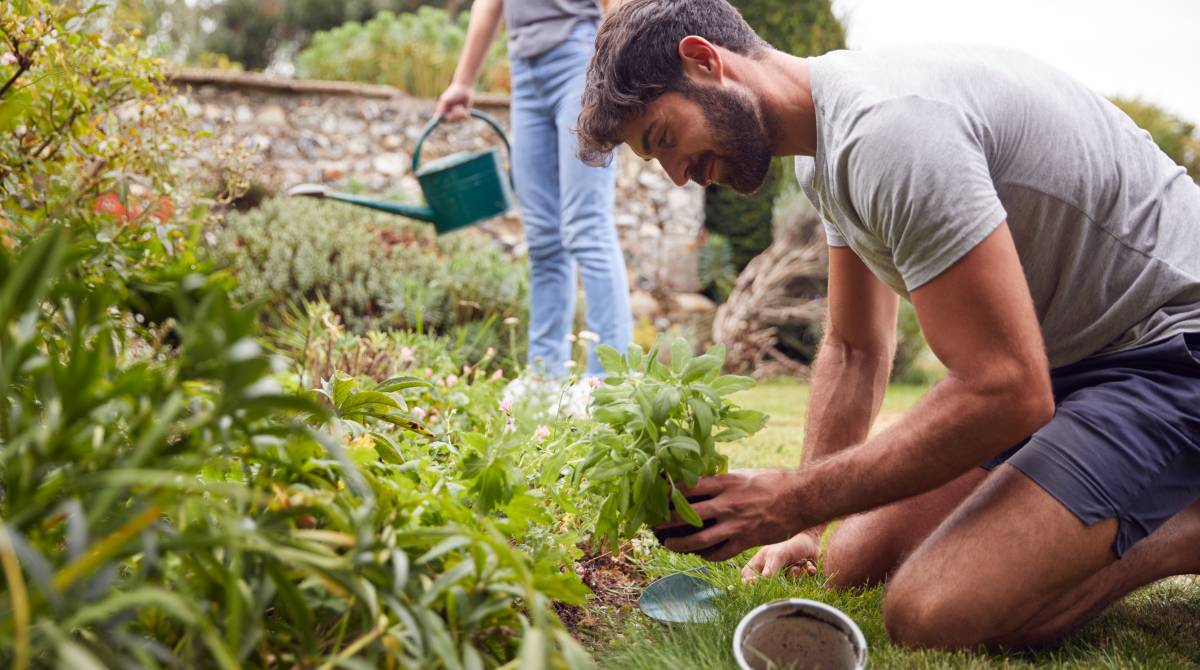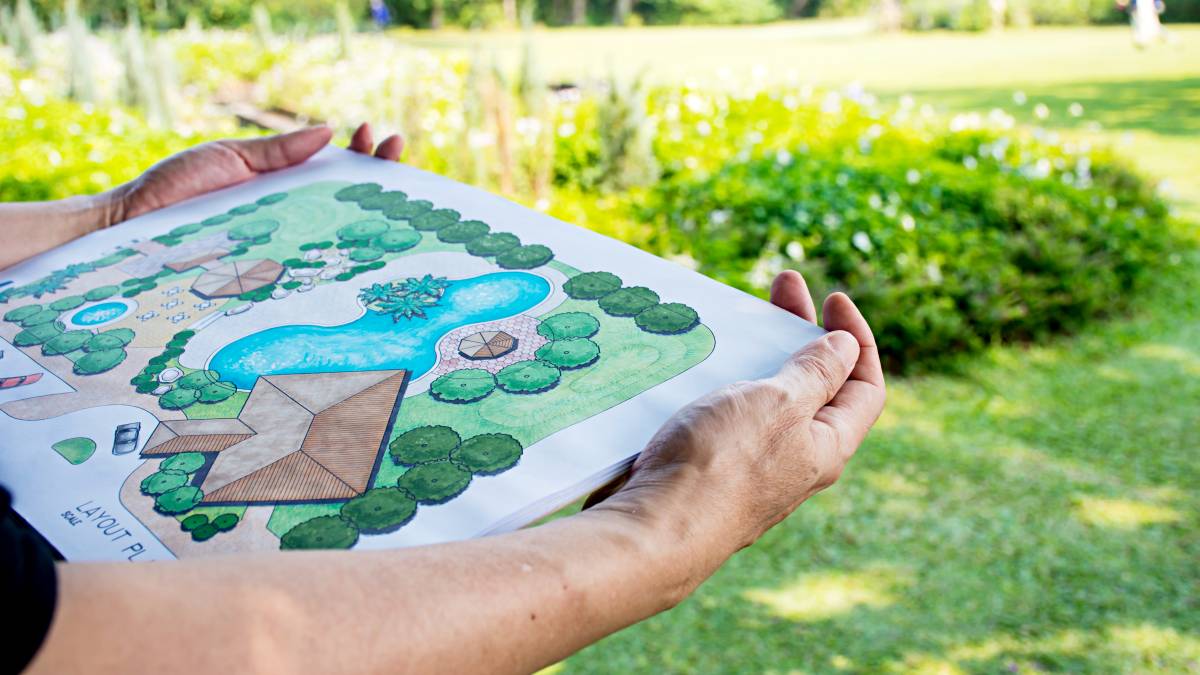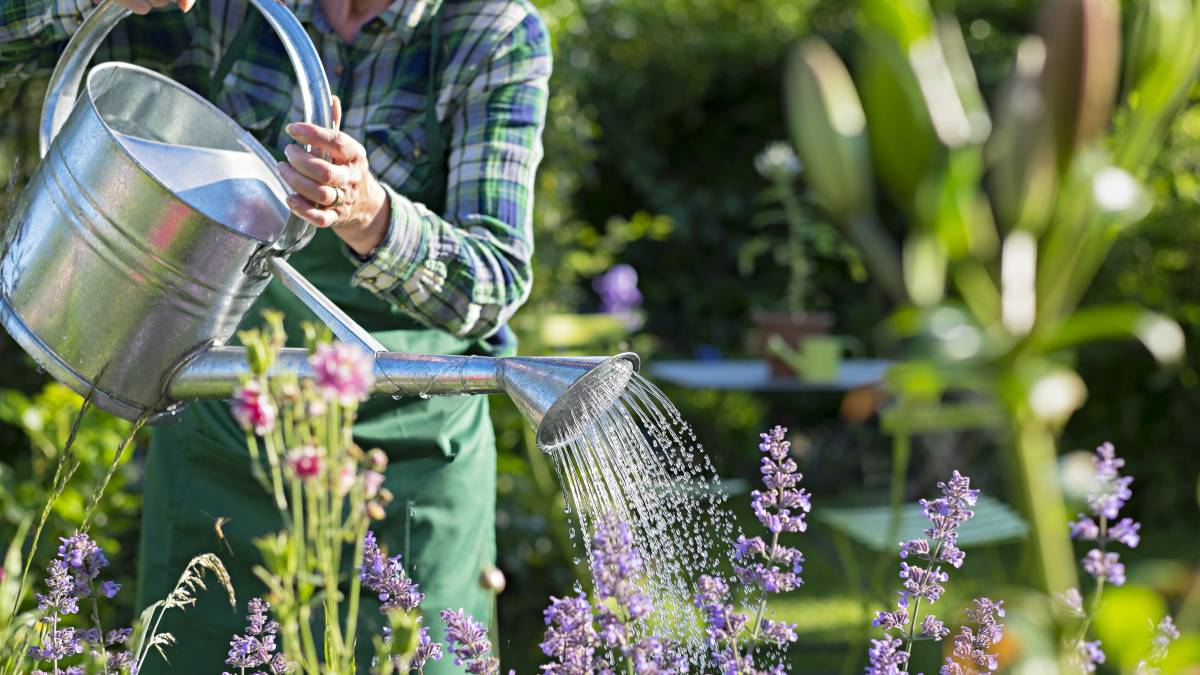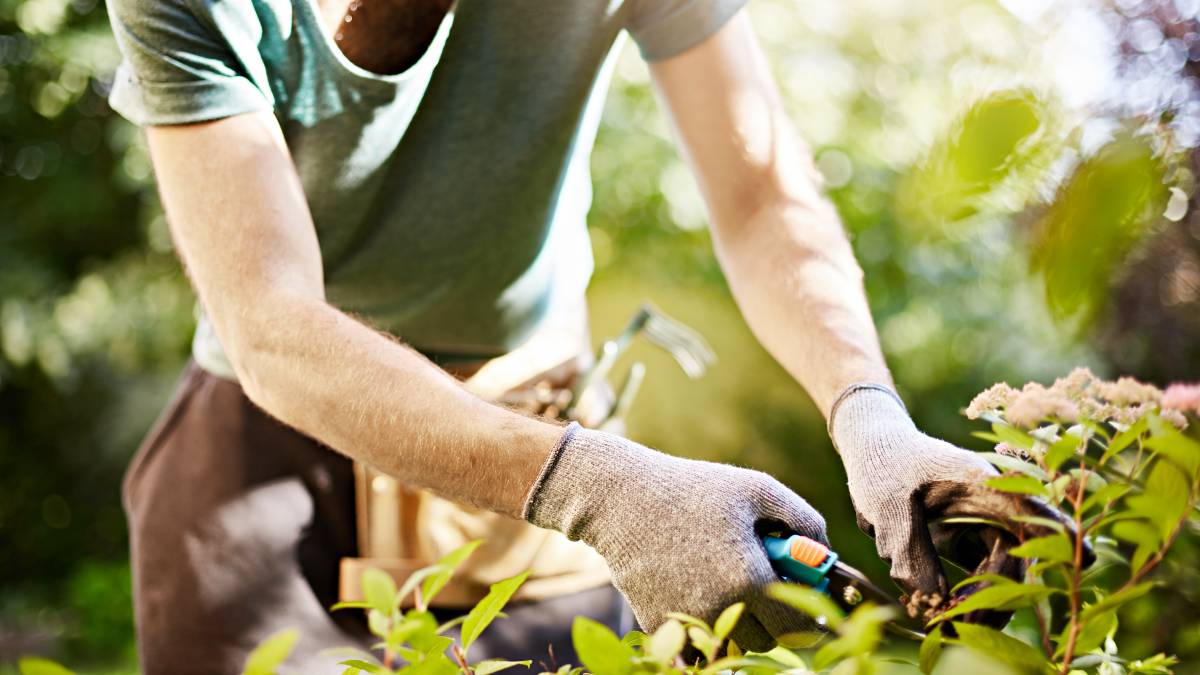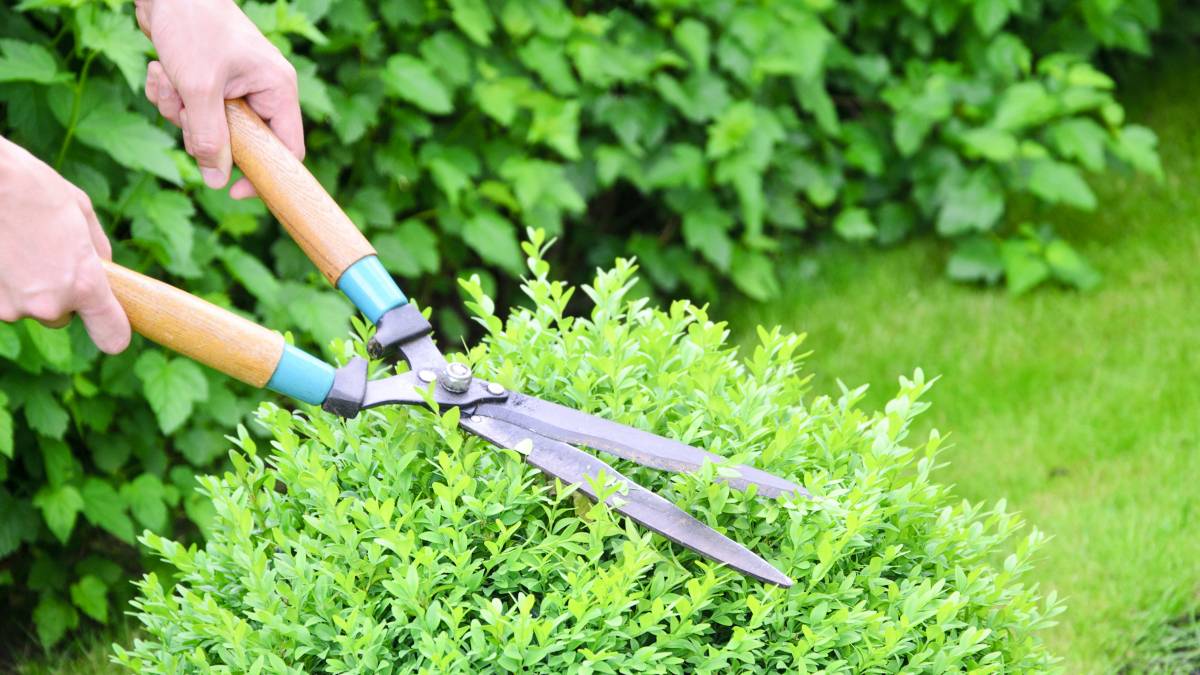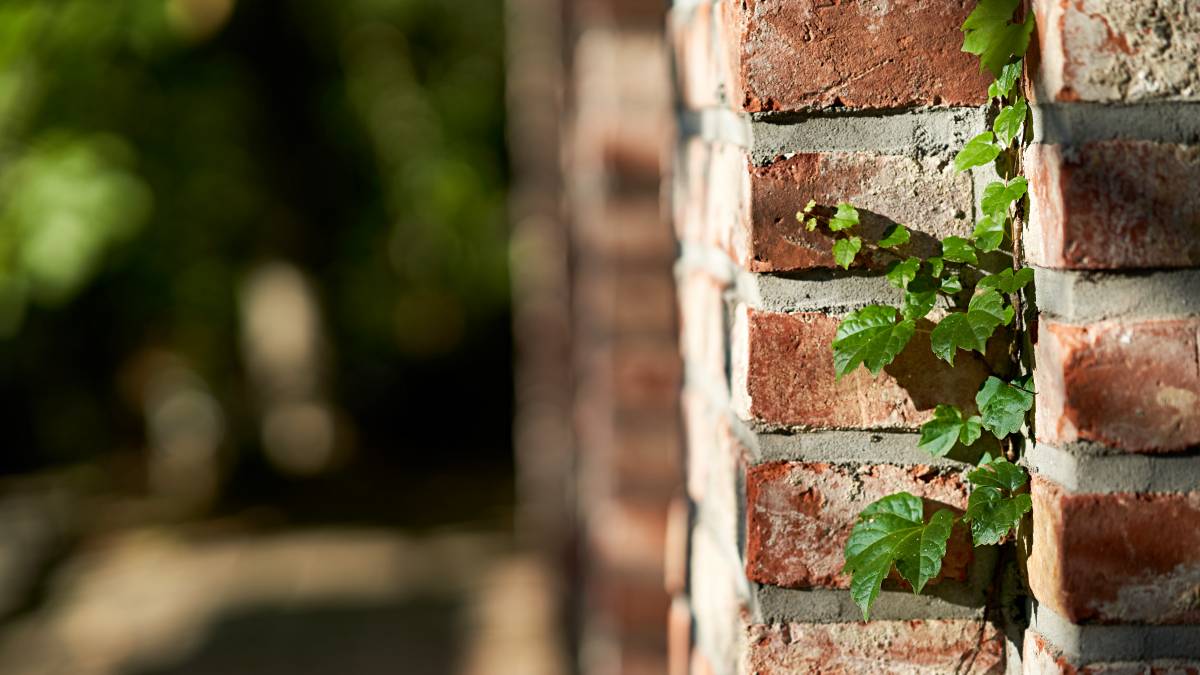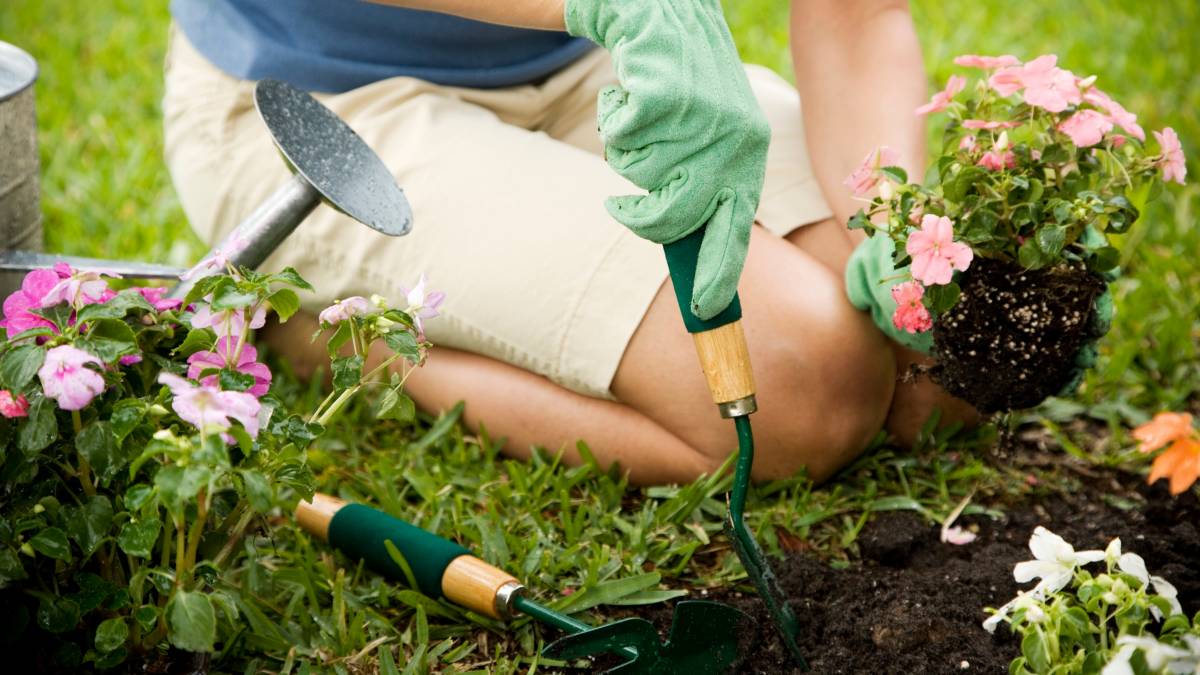
7 profitable gardening skills you can quickly learn
Check out these gardening skills that you can instantly turn into a profitable side hustle.
Explore gardener jobsLast Updated on
A huge part of being a successful gardener is the dedication and commitment to continue learning about gardening. This requires a lot of patience. And what started as a hobby can sprout into a side gig if you put in the work and time to master the necessary skills.
The key to becoming a successful gardener is to enhance your knowledge and develop valuable basic gardening skills. You can help your local community with their gardening needs once you understand the fundamentals.
What skills do I need to be a gardener?
This list of gardening basics will help you learn how to become a reputable gardener and make money from it.
1. Watering plants
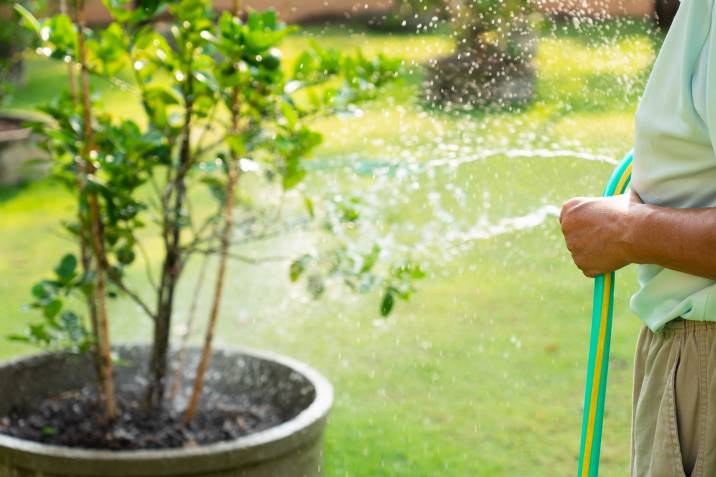
You don’t want to let the plants out too long without a drink, as they can get really thirsty. Likewise, you wouldn’t want to give them too much water.
Watering depends on factors such as the type of plant, its soil, the weather, and the season. Checking the soil should tell you when to water plants. And the best way to water them is to ensure the water reaches the plant’s root system.
You can check if your plants are watered properly by:
Doing a lift test. If the pot feels heavy, that means the plant still has adequate moisture. If it’s light, it’s time to water it thoroughly until you see water flow through the pot’s bottom.
Using a soil moisture sensor to see the volumetric water content of the soil.
Simply checking what the soil looks like by doing the finger test to check if the soil is dank or bone dry.
Examples of watering tasks you can do
-
Offer to water plants for someone going out of town or the country.
Help out an elderly’s huge garden to keep all their plants alive.
2. Soil analysis
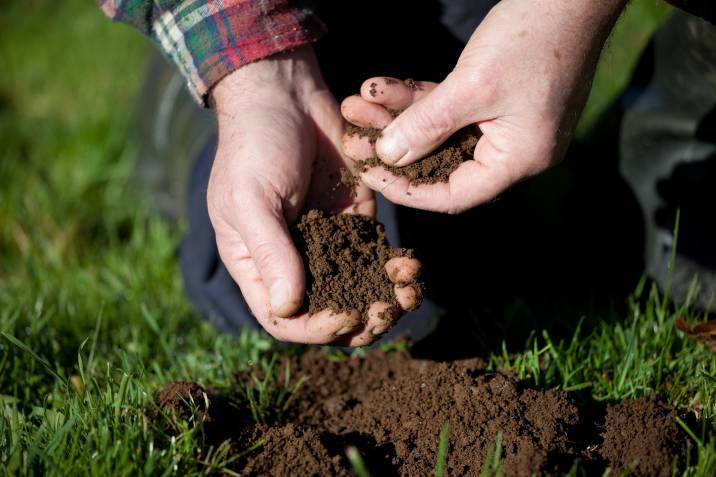
Soil analysis lets you know the texture, nutrients, material content and type of plants that will flourish in that soil. It’s ideal to check the soil pH before garden designing or planting. The pH scale ranges from 0 to 14 or from acid to alkaline, which means soils with a pH within 6.5 to 7.5 carries the optimal amount of essential nutrients.
A convenient way to determine if the soil has enough essential nutrients is by testing its pH level. You can use a soil pH kit to measure the pH level of your home garden (or your future customers!).
You’ll need a soil pH test kit, a tablespoon, distilled water, and a mixing container. You can follow the instructions on the kit and determine the result through its pH test strips color chart.
Soil analysis tasks you can do
-
Help beginner gardeners check if their soil is acidic, alkaline, or neutral using a soil testing kit.
Offer soil mix recommendations and improvements to clients who want to create an optimal growing environment for their home garden.
|
Do you need formal certification to offer soil analysis services? Formal certification is not required to perform a simple DIY soil analysis test kit at garden centers for home testing. However, you can get a GED certificate if you want to become a soil technician and focus on soil-related work. |
3. Planting seeds
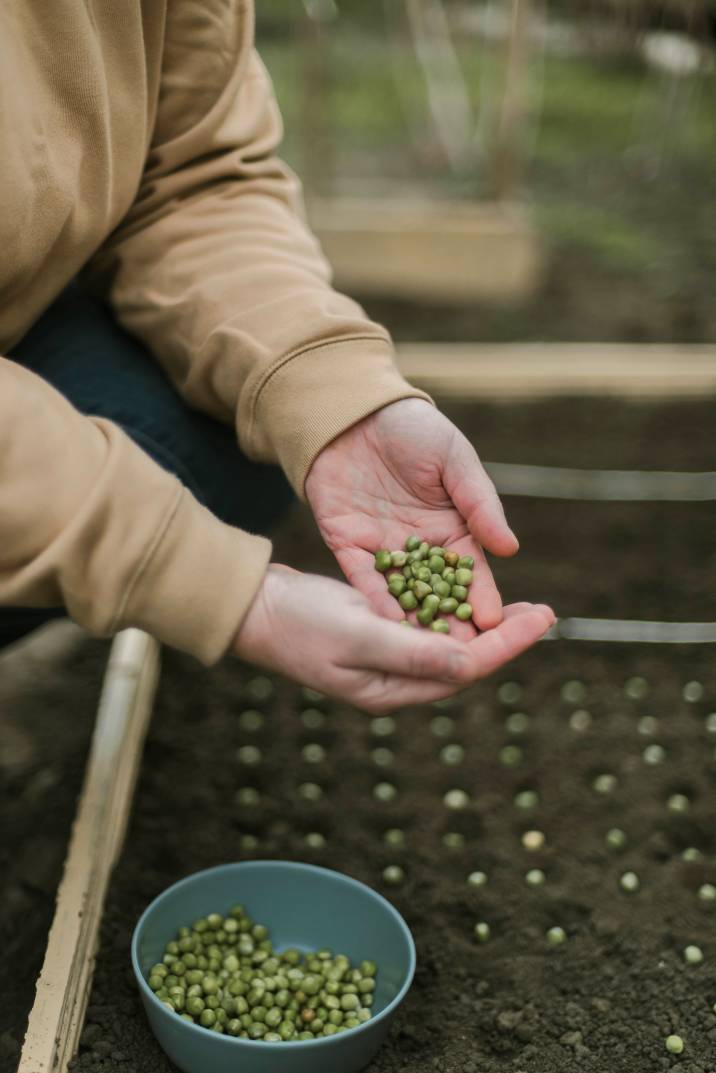
While beginner gardeners can raise plants from seeds, those who truly know how to garden have a high growth success rate with starting seeds.
Planting seeds or seed germination is a process where you grow a plant from a single seed, developing from a sprout to a complete plant when well taken care of. To get seed germination right, you need to consider the seed quality, temperature, and depth when sowing. Here’s how you can start a herb garden from seeds.
Research about your seeds for the best way to encourage germination. Once you see tiny shoots coming out of the tray, that’s when you can sell them. Young seedlings 2 to 3 inches high and developed three to four new leaves can be transplanted into a small pot for selling.
Profitable plants to grow and sell
-
Herbs like basil, mint, lavender, and sage
Vegetables like eggplant, carrots, and lettuce
Trailing vines like string of hearts (a common houseplant)
Examples of growing seeds tasks you can do
-
Offer starting seeds for beginner gardeners.
Transplanting or repotting seedlings outdoors or in containers for indoor home gardening.
|
How long does seed germination take? Each plant has its own germination rates. For vegetables like lettuce and eggplant, they can take 7-15 days to germinate, while other plants like onions and cabbage take 7 to 10 days. Do you need a license to do seed germination? Check with your local government about a license to sell plants. In California, a License to Sell Nursery Stock is required for anyone selling plants for planting, propagation, or ornamentation. If you plan to buy and sell seeds online, you must adhere to U.S. import requirements. |
4. Garden planning
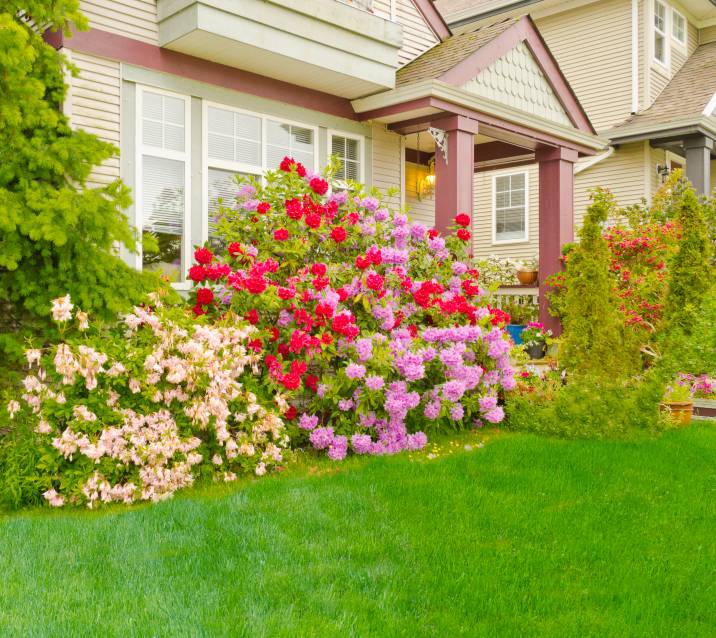
Garden planning is another skill that will be valuable when you start a gardening business. This entails choosing the most optimal location for growing plants and determining the size of the garden and the types of plants to grow.
Considerations for garden planning
Location: Consider the garden’s size, layout, drainage, and sunlight. Foot traffic is another important element, as you don’t want instances of people stepping or tripping on the greens.
Types of plants: You can plant shrubs, herbs, vegetables, and flowers. The key is to find the right balance between the chosen plants (e.g. height, compatibility, and size) and their needs.
Purpose: What is the space for and how do you want it to look? For instance, a cottage garden may not be ideal if the lawn serves as a play area for the kids.
Type of garden: Does the customer prefer growing plants in hydroponics? Do you think a garden bed would work best for their space? Think about the space, lifestyle, and preferences of the customer to carefully design something suitable for their home.
Specific garden planning tasks you can do for customers:
Offer consultation and garden presentation plan recommendations.
Provide assessment and drafting of planting plans for various soil types, conditions, species, and cultivars.
Recommend planting arrangements for beginner gardeners or rearrangement and improvement for customers who want a garden makeover.
|
Do you need formal certification to offer garden planning services? It’s not mandatory, but a certificate program can be beneficial for those who want to start or become professional landscapers and garden designers. |
5. Mulching
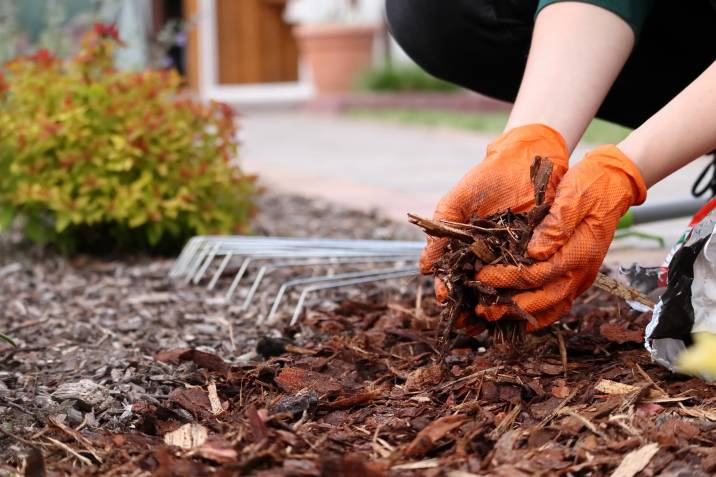 Mulching is a gardening technique where you cover the soil with mulches like leaves, organic materials, garden compost, processed bark, pebbles, chipped stone, and wood chips. This helps repress weeds, retain soil moisture, protect plant roots and improve the soil around the plants.
Mulching is a gardening technique where you cover the soil with mulches like leaves, organic materials, garden compost, processed bark, pebbles, chipped stone, and wood chips. This helps repress weeds, retain soil moisture, protect plant roots and improve the soil around the plants.
Mulches provide other benefits like regulating soil temperature during summer or winter. This process is also a fantastic way to level up your garden’s appearance – a win-win for aesthetics and benefits!
Mulching tasks you can do for customers:
Help beginner gardeners or busy customers mulch their garden.
Buy mulching supplies for customers who don’t have time to do so.
Remove old mulch and put a new layer down for clients.
6. Composting
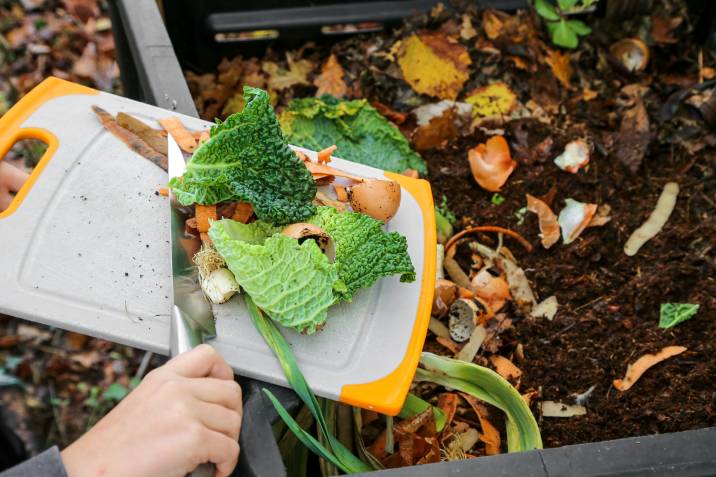
Composting is an environmentally-friendly process of recycling organic materials such as garden waste and fruit peels or any other kitchen waste. The result gives you a dark and crumbly product you can use to add to your soil or in a potting mix.
With composting, all you need to do is gather the materials and let nature do its job. Here are the basic steps of composting:
Ready your containers for your composting bin.
Gather your composting materials. Alternate between green (e.g. grass clippings, fruits, and vegetables) and brown (e.g. prunings, woodchips, leaves, and plant stems) for a more balanced compost.
Water the compost regularly – don’t put too much and don’t let it sit dry.
Stir the pile periodically for proper aeration.
You can feed the compost to the soil once it turns into a dark, soil-like texture.
Composting tasks you can do for customers:
-
Help customers clean and/or build their own compost bin
Provide pick-up services for those with extra waste to be donated to local community gardens.
Offer composting services in areas that might not have it for customers that don’t do home composting.
7. Garden maintenance
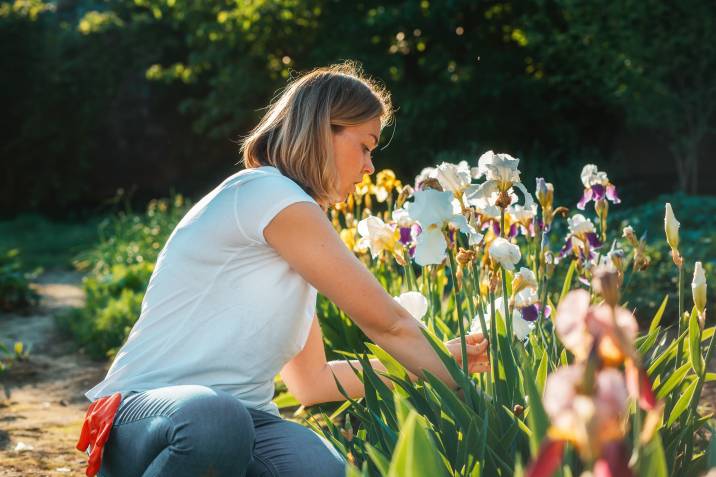
Proper garden maintenance ensures the plants are in good health and the area is clean at all times. Otherwise, the area may end up looking rundown and damaged, which is a huge waste of the outdoor space and resources in creating that beautiful garden.
Aside from the garden’s look, regular maintenance also prevents plant diseases from spreading, gets the weed problem contained, and keeps the garden a safe place. Gardens need care and attention to look their best all year round.
Garden maintenance tasks you can do for others
-
Lawn mowing
Weeding
Pruning plants and bushes
Trimming hedges
Garden waste removal
Related article: How much does a gardener cost? |
Hone your gardening skills and start earning money
What started as a keen interest in plants can develop into something bigger like garden management and enhancement. Practical experience and continuous learning to develop your skills are crucial to becoming a successful gardener. You can lend a hand to those looking to hire an expert gardener for their gardening needs.
Once you have enough experience and know-how in this field, you can become a Tasker and offer basic gardening services to others. You can help beginner home gardeners and busy bees take care of their plants!
FAQs about gardening skills
You can improve your skills by paying close attention to your plants, understanding their needs, and tending to them regularly to keep them alive and healthy. Invest in your garden to master valuable skills. Another thing you can do is learn from other expert gardeners in your community and get useful tips and advice.
Gardening is an excellent job you can do full-time or part-time. It provides a lot of flexibility since there are various tasks you can do and offer as services. If you don’t mind getting your hands dirty and you want something that gives a good work-life balance, starting a career in gardening is a good choice. You can begin with the skills above to build your foundation and expertise.
Create your profile and start browsing jobs in minutes
Start earning now
Related articles

13 best spring gardening tips
Read more
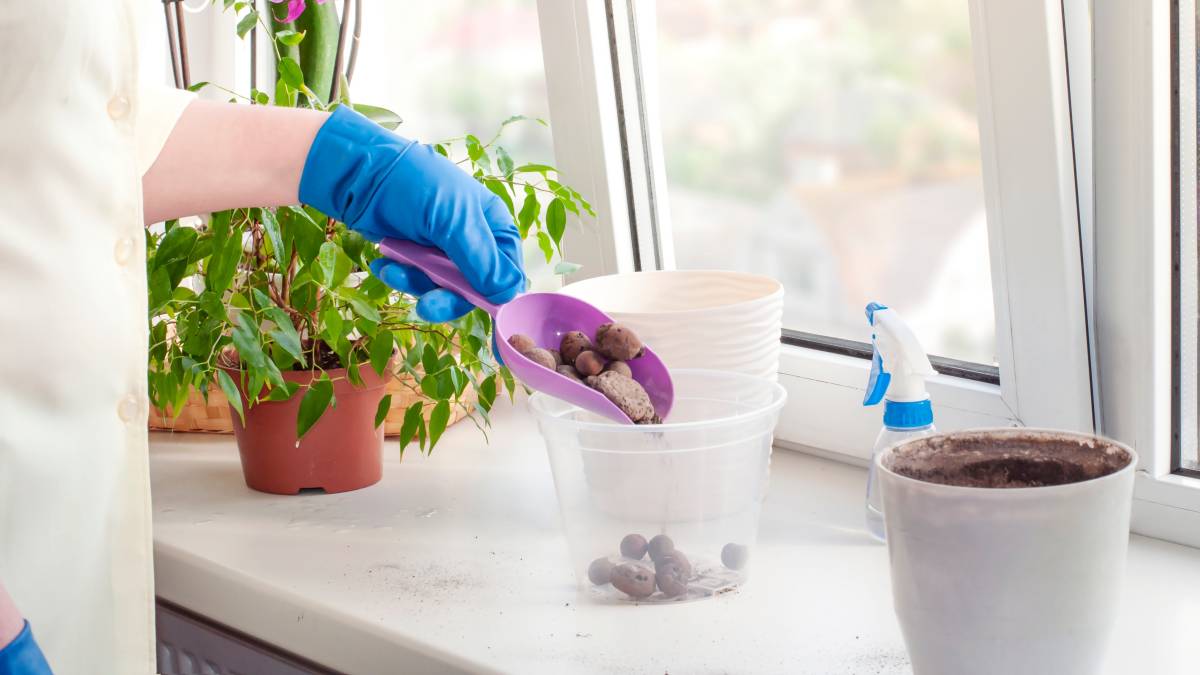
36 Quirky plant pot ideas you’ll love
Read more
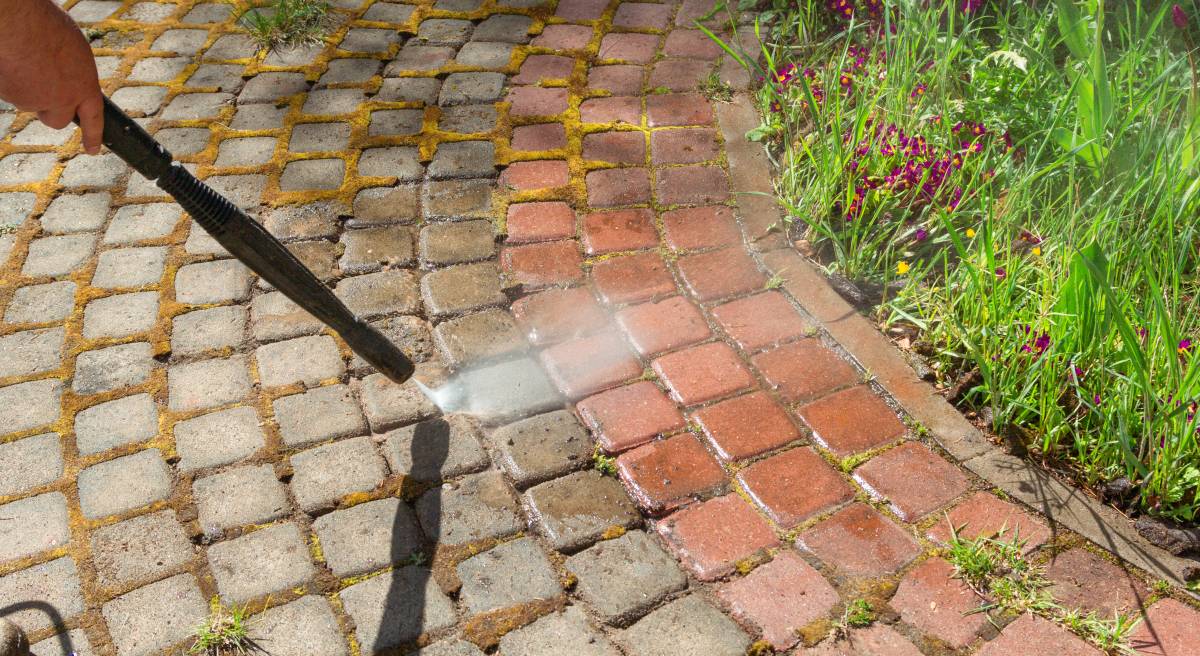
How to clean landscape rocks
Read more
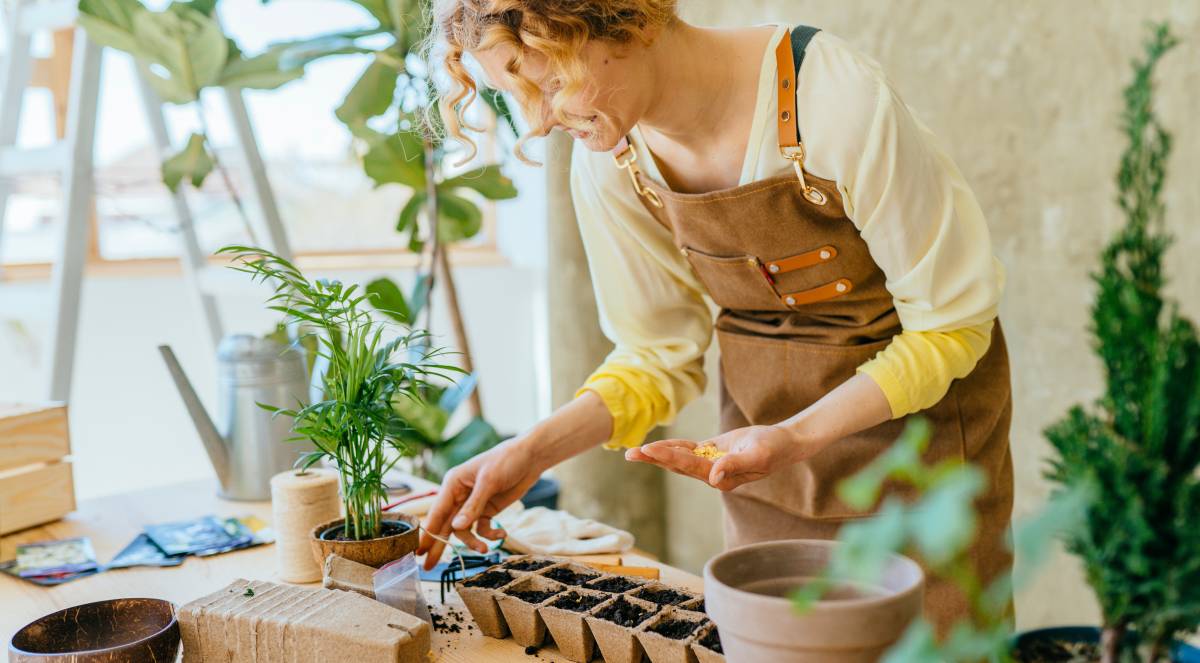
25 ways to make money gardening
Read more
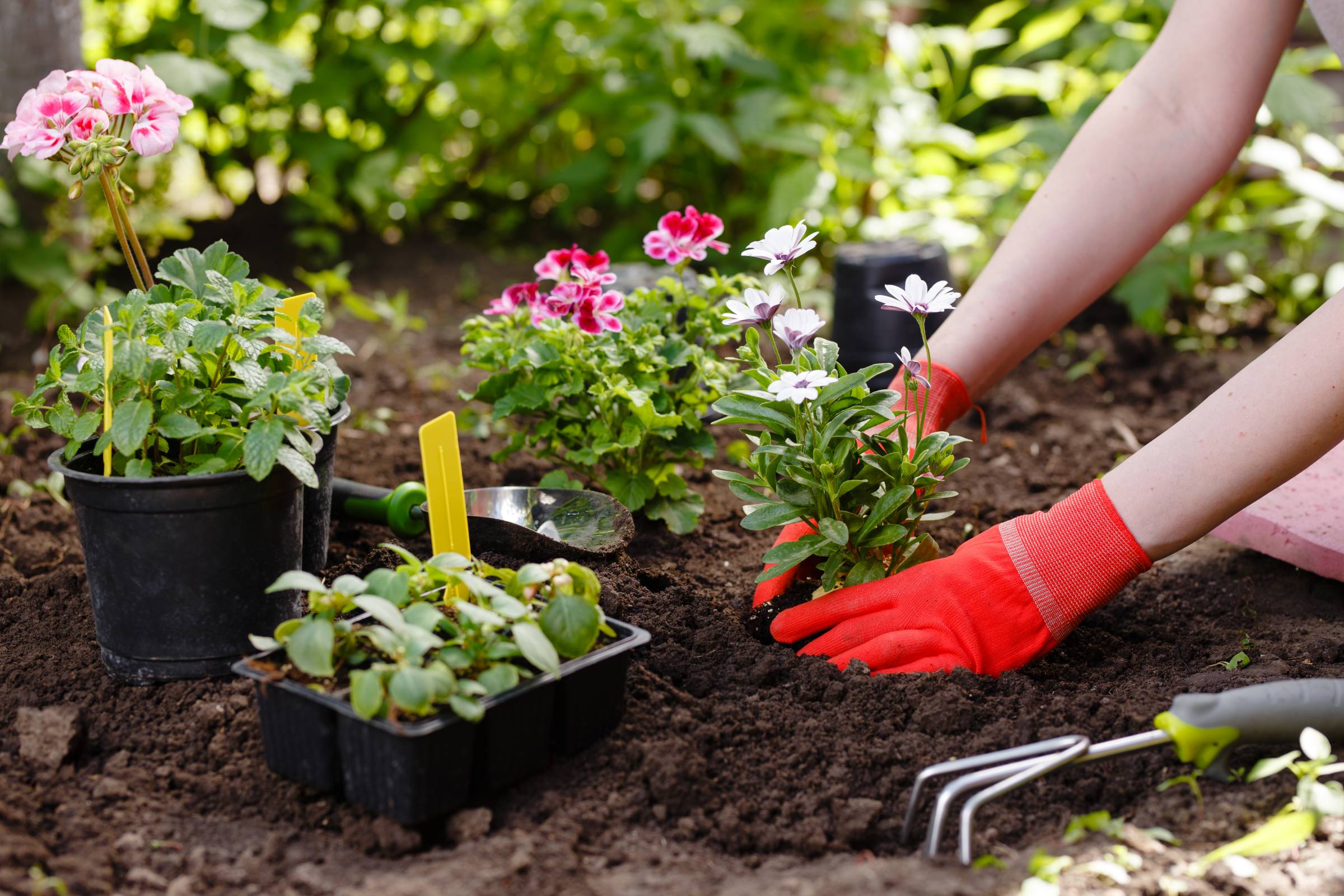
Your garden maintenance checklist
Read more
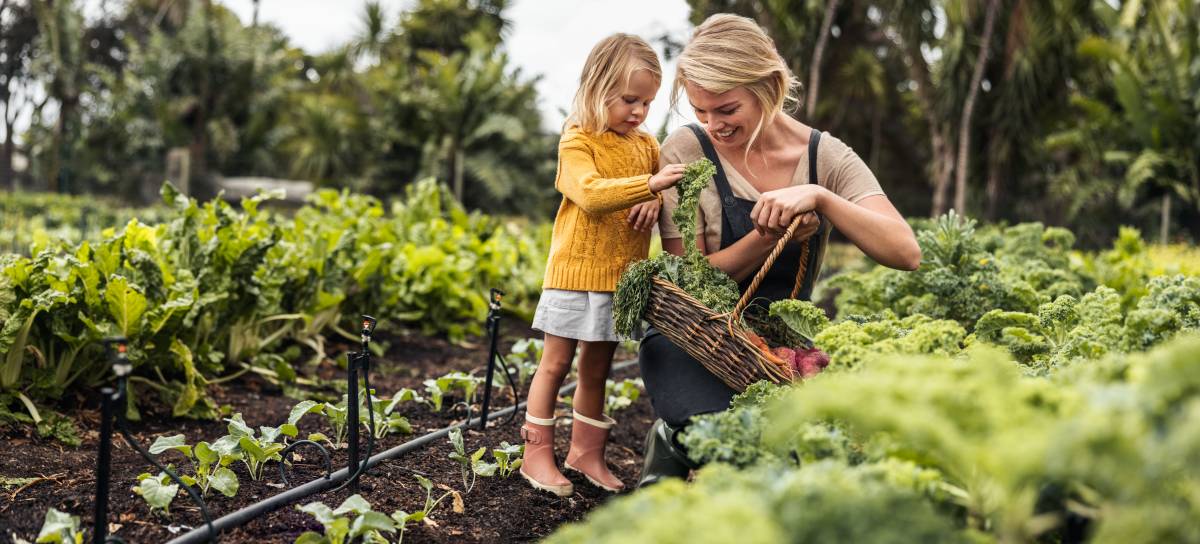
How to Start a Vegetable Garden
Read more
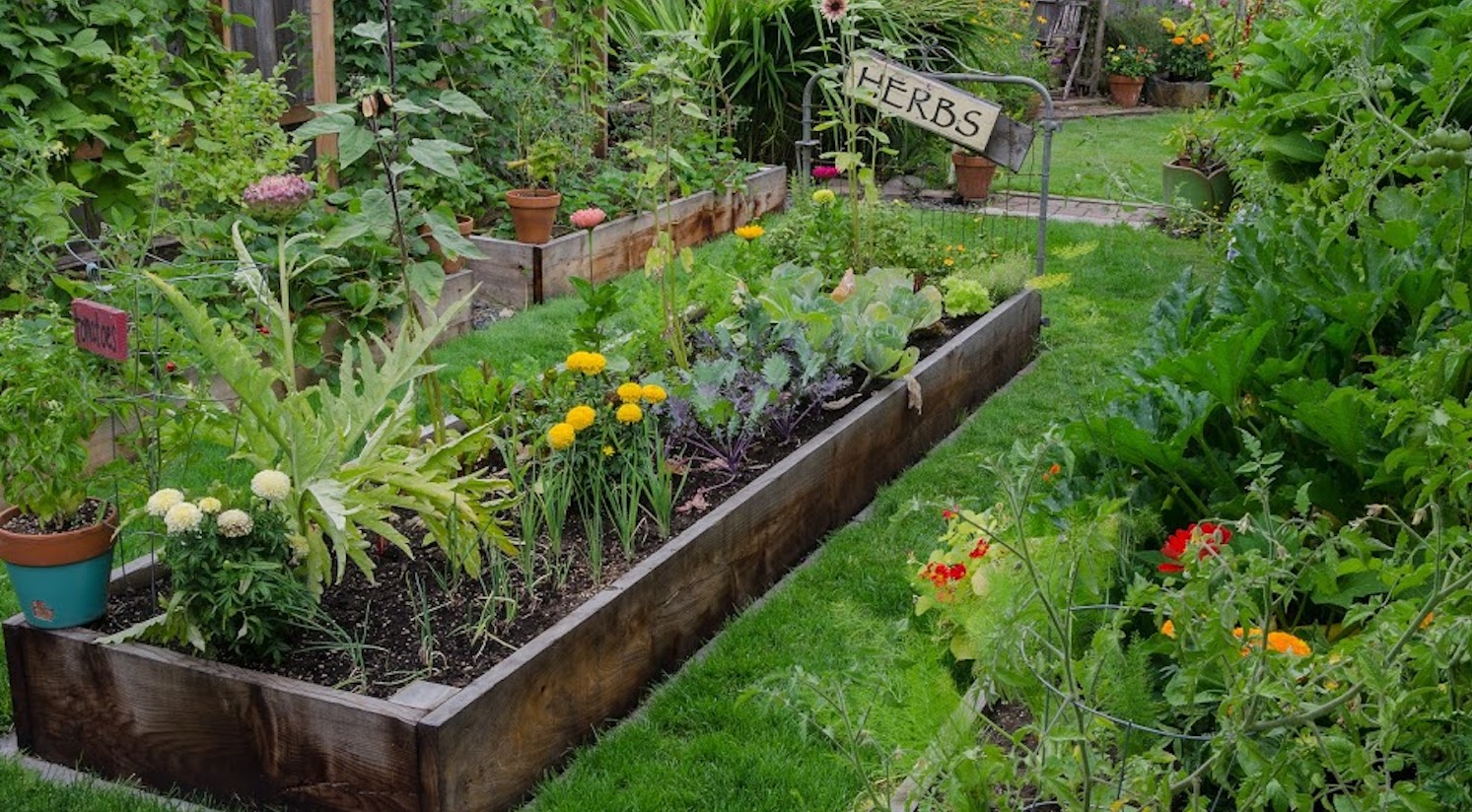
How to build a raised garden bed
Read more
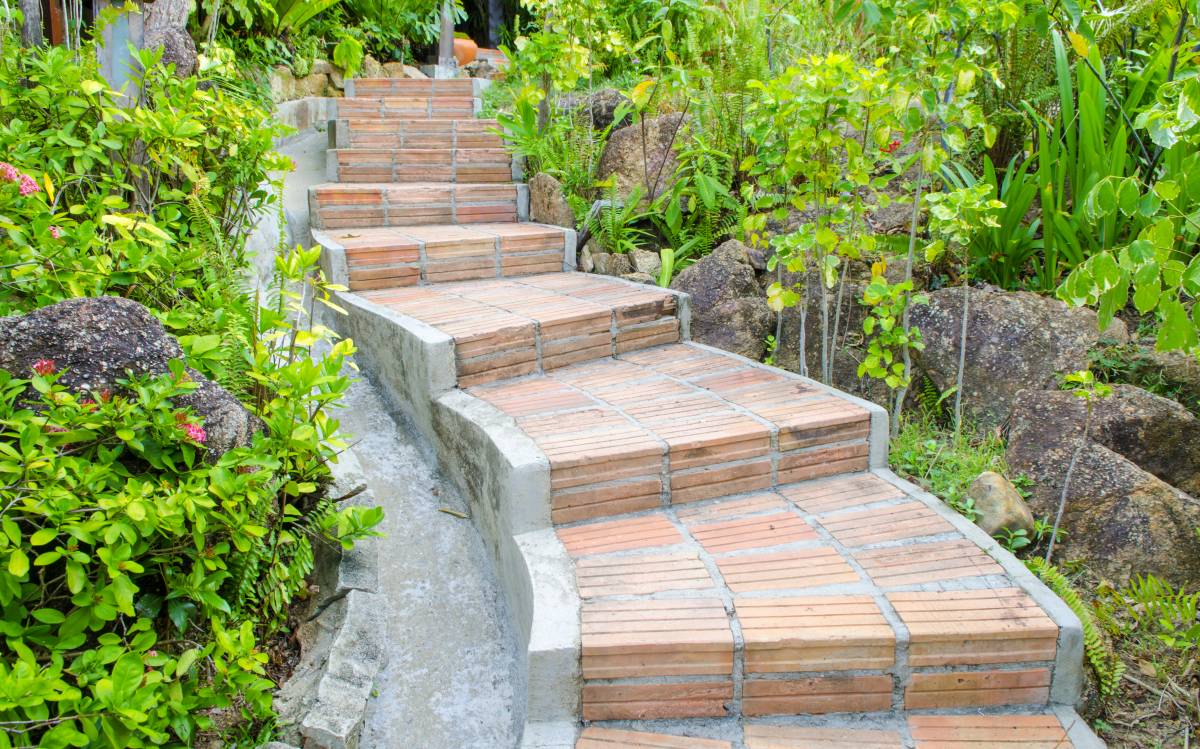
How to build garden steps
Read more
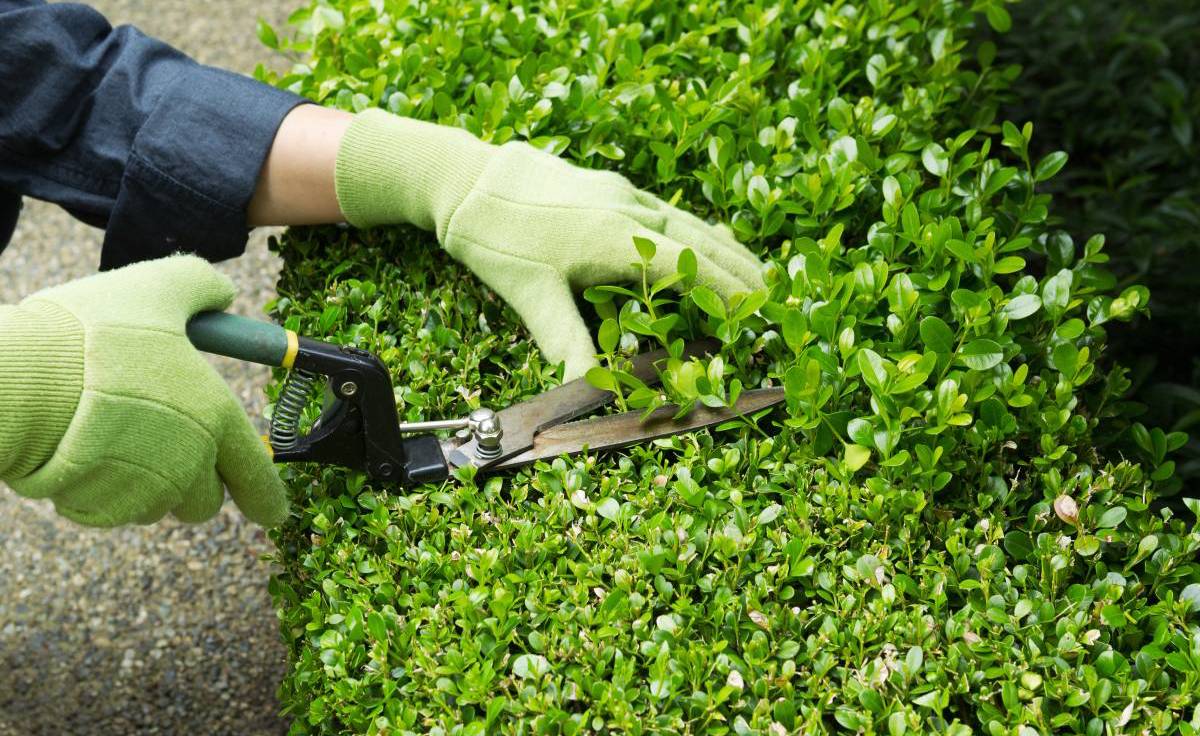
How to trim bushes the right way
Read more
Related price guides
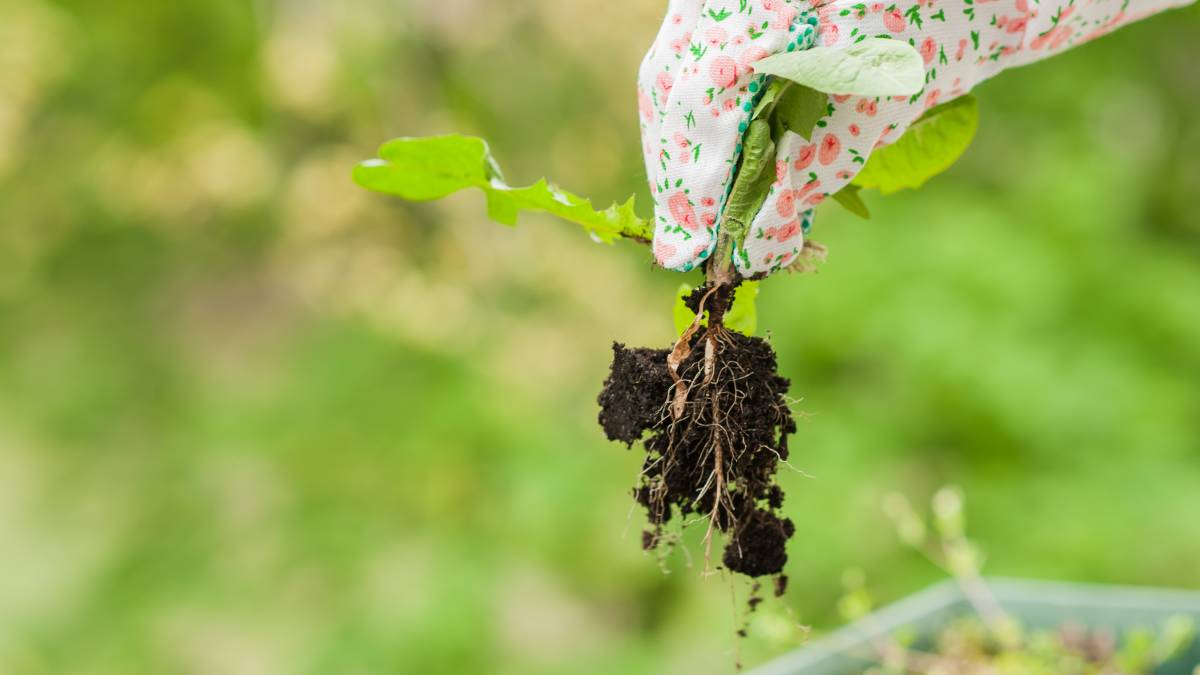
How much does weeding cost?
Read more
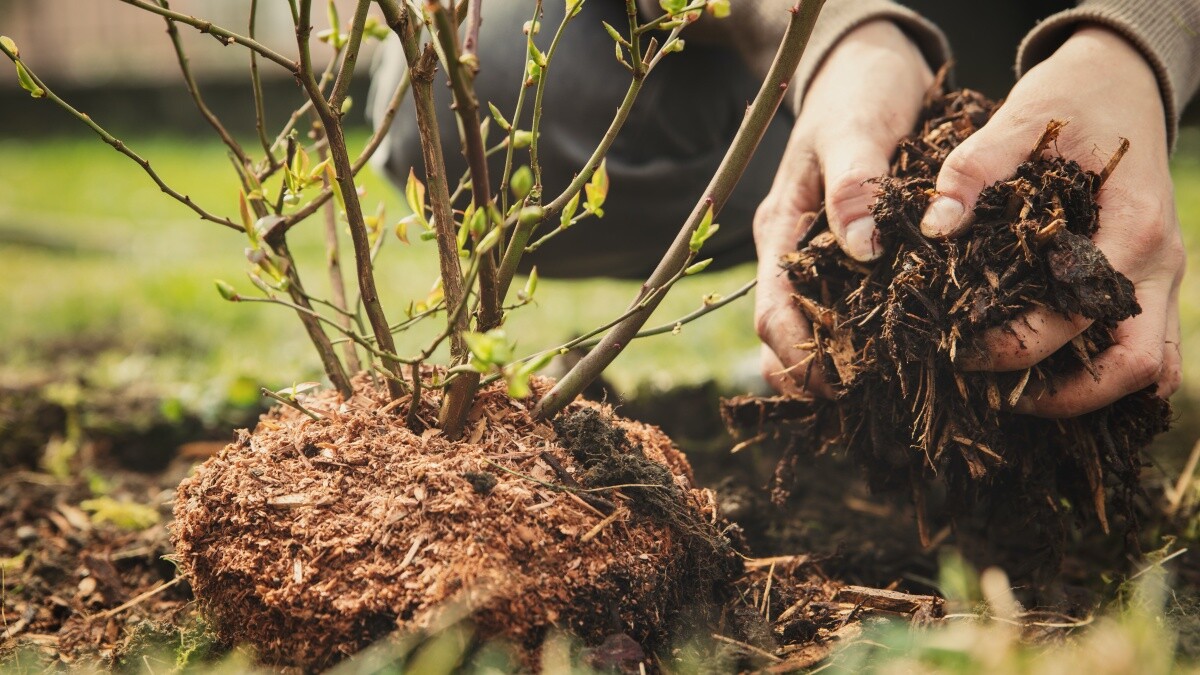
How much does mulch cost?
Read more

How much does a garden room cost?
Read more
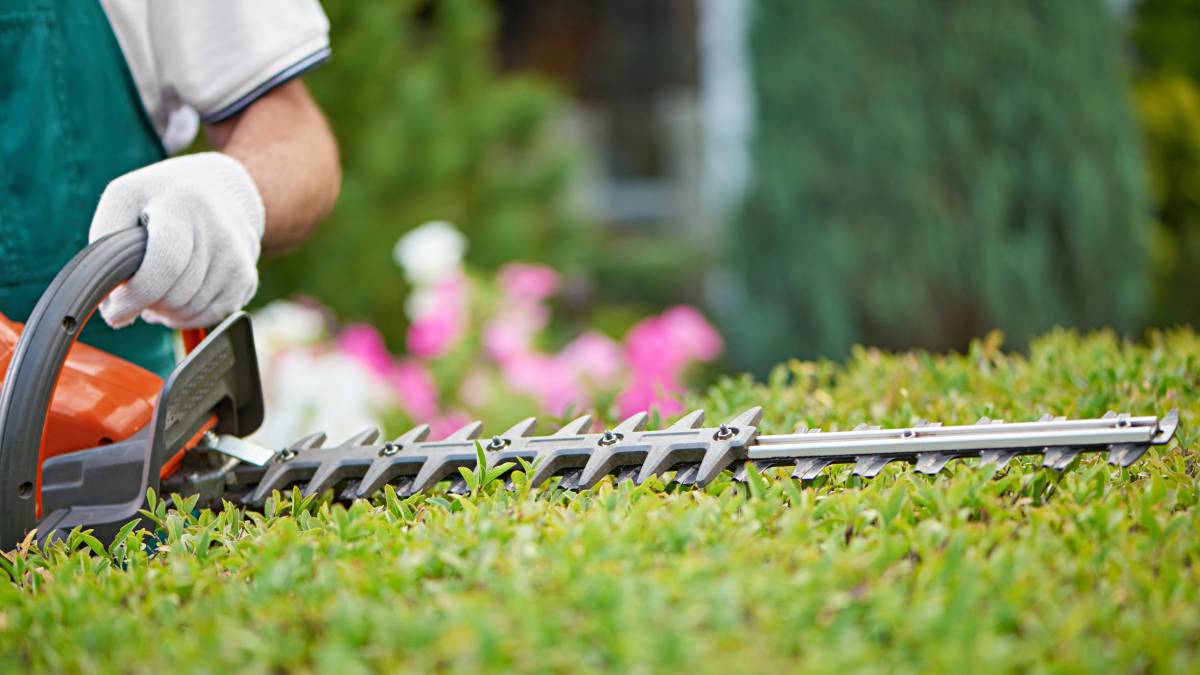
How much does hedge removal cost?
Read more
